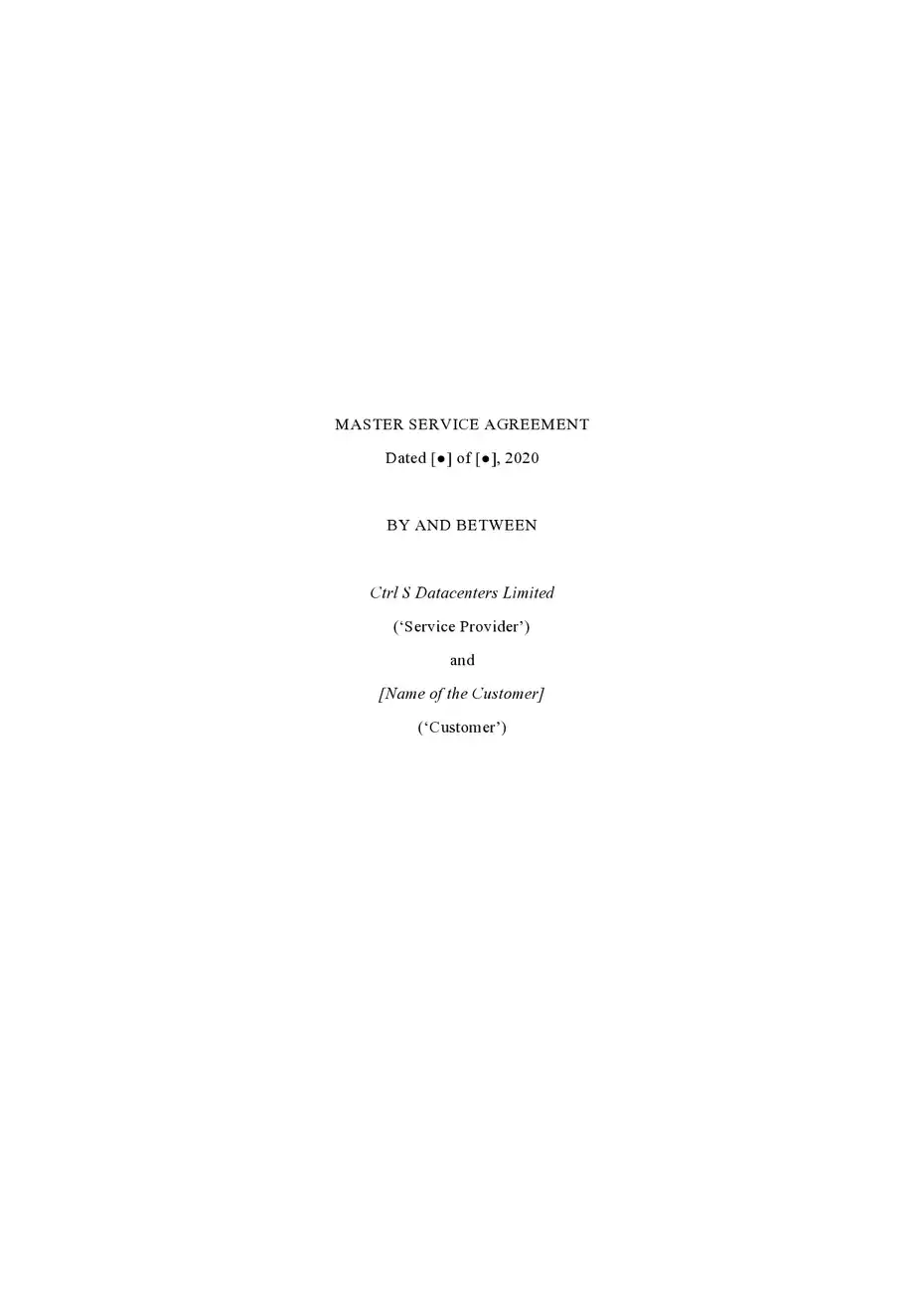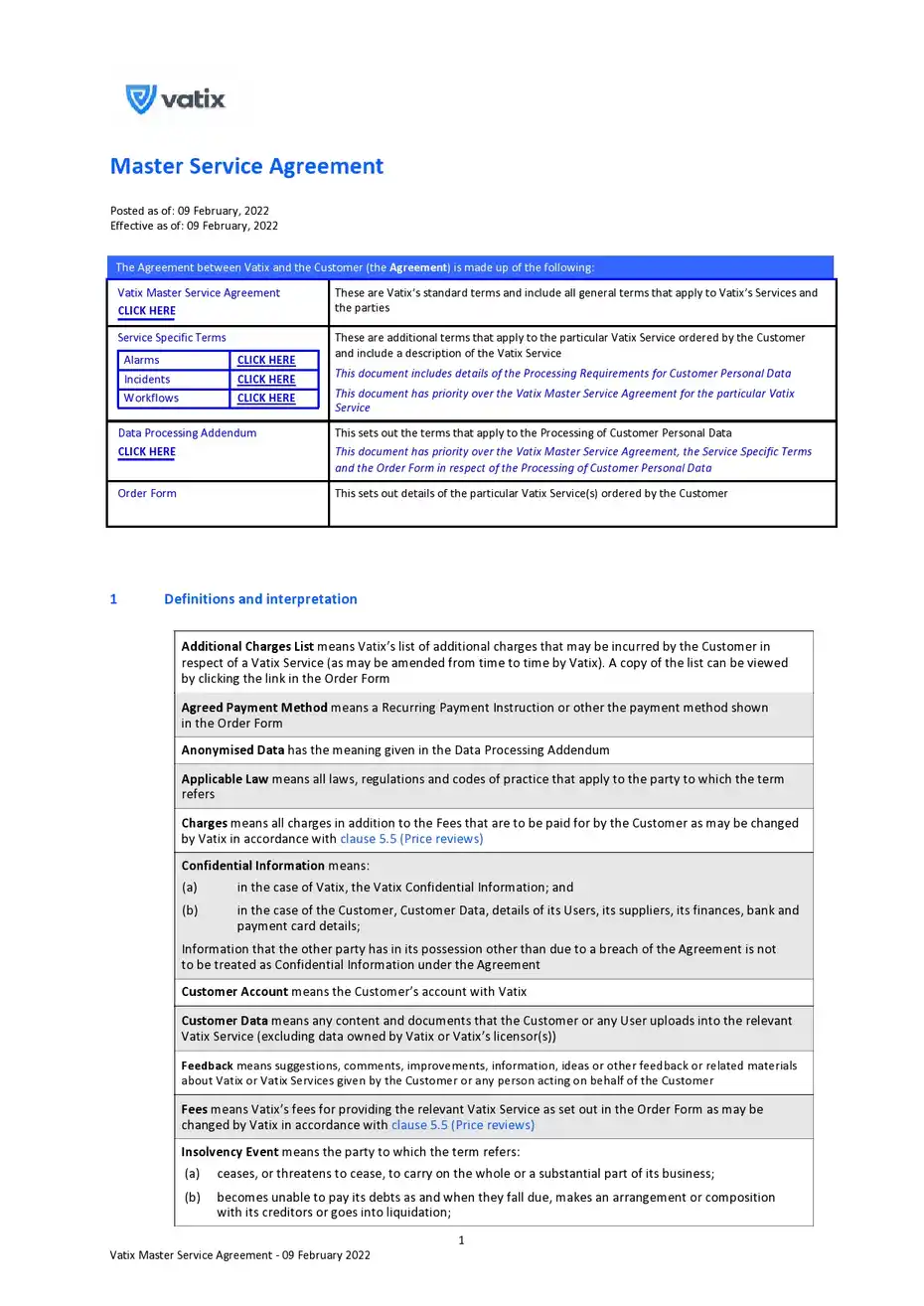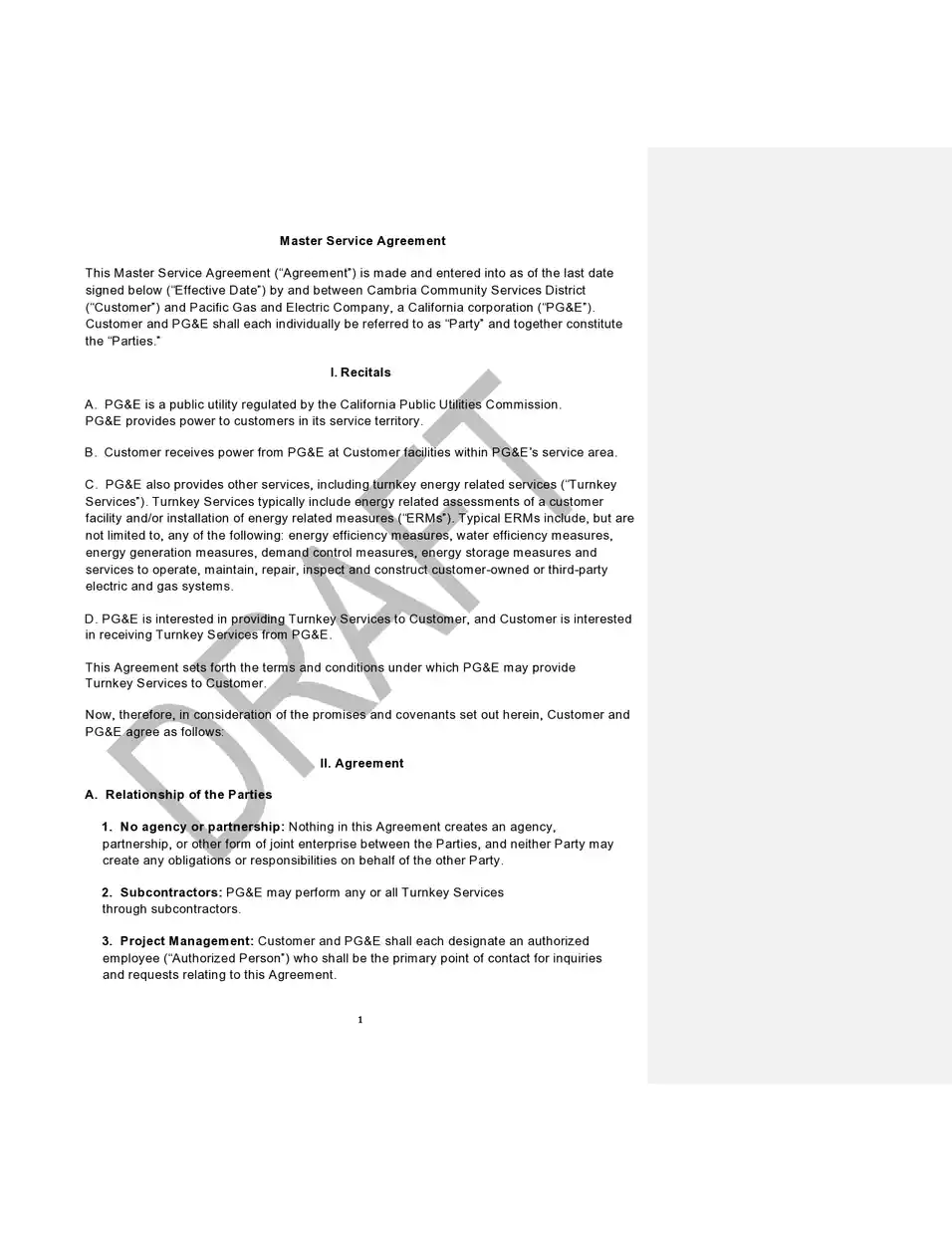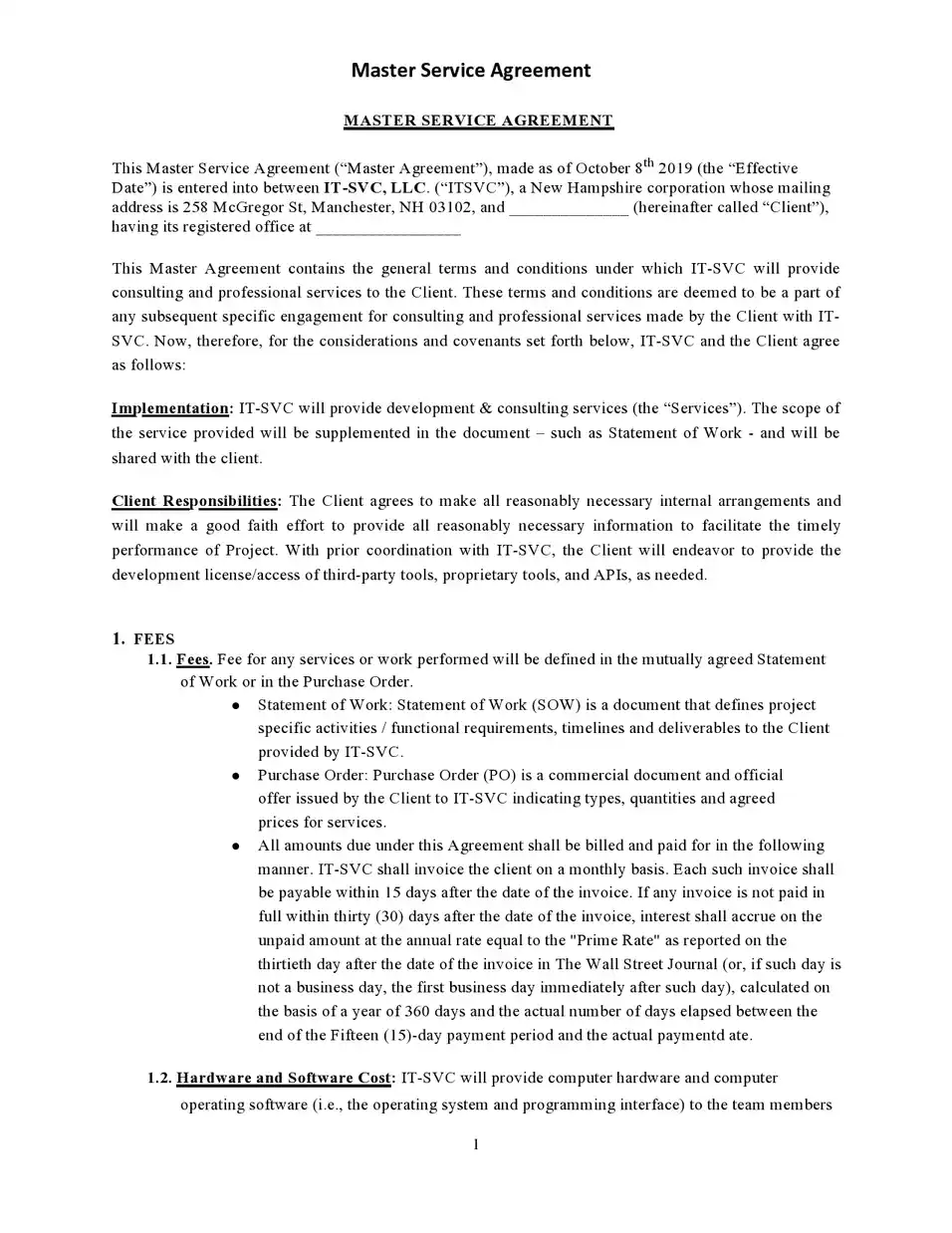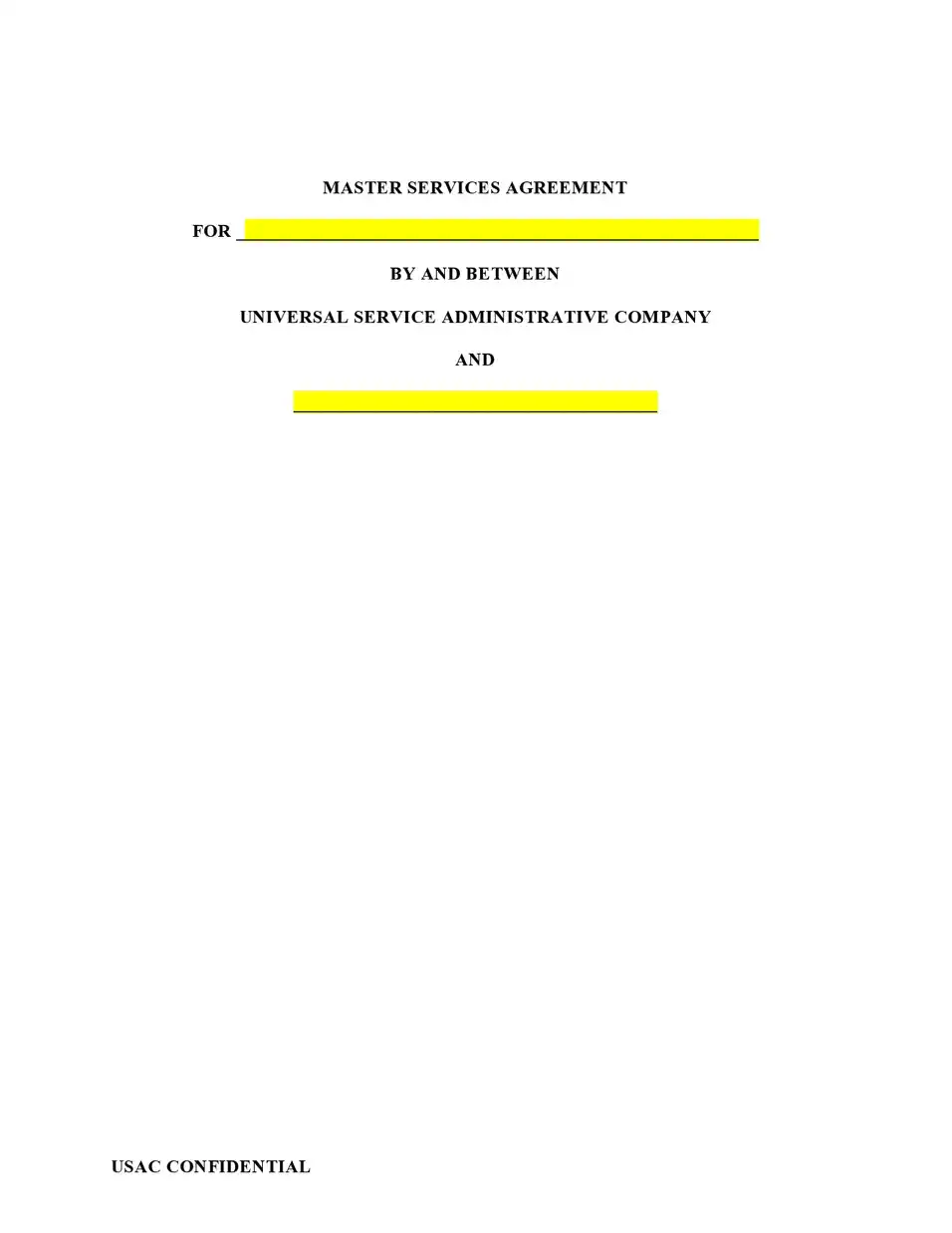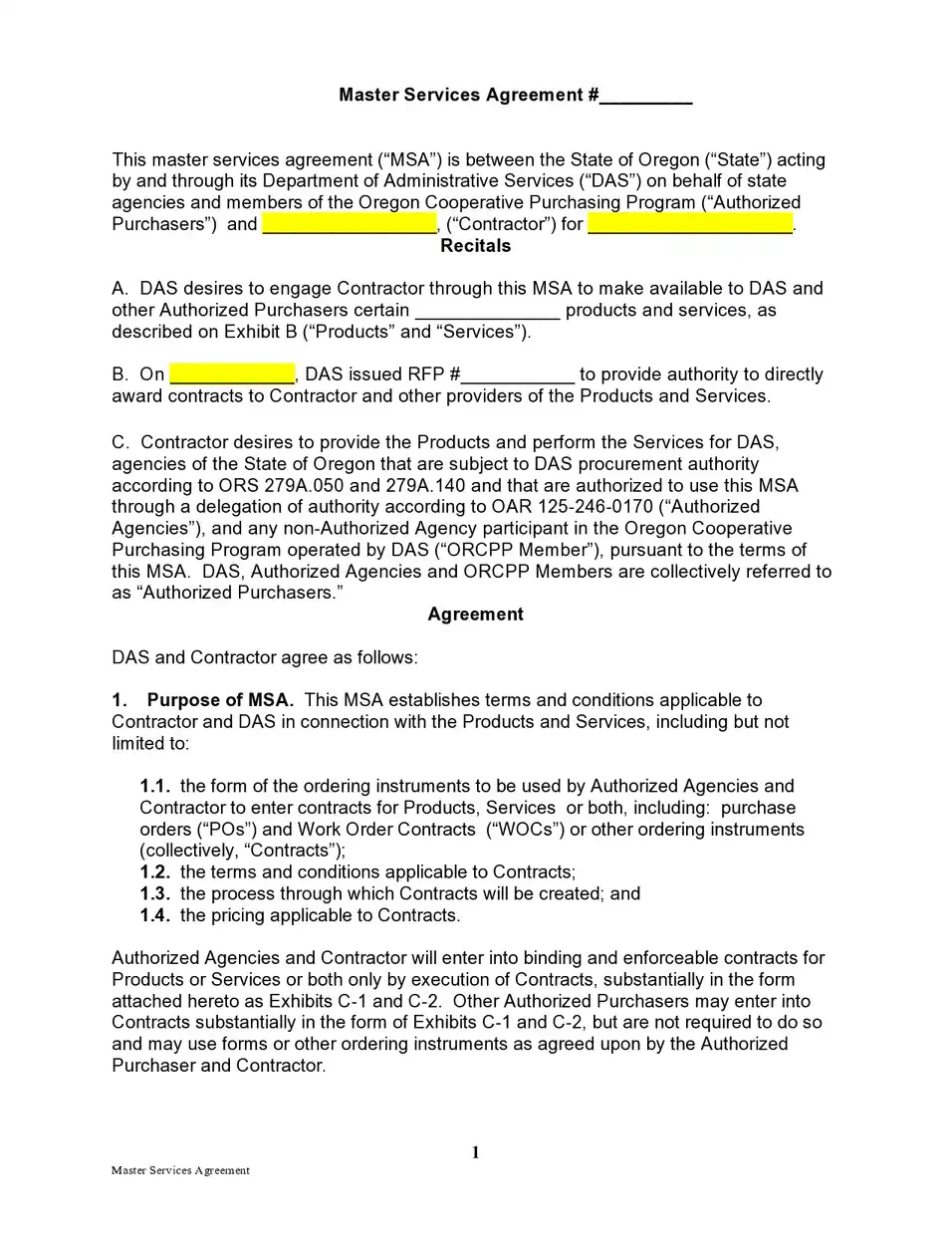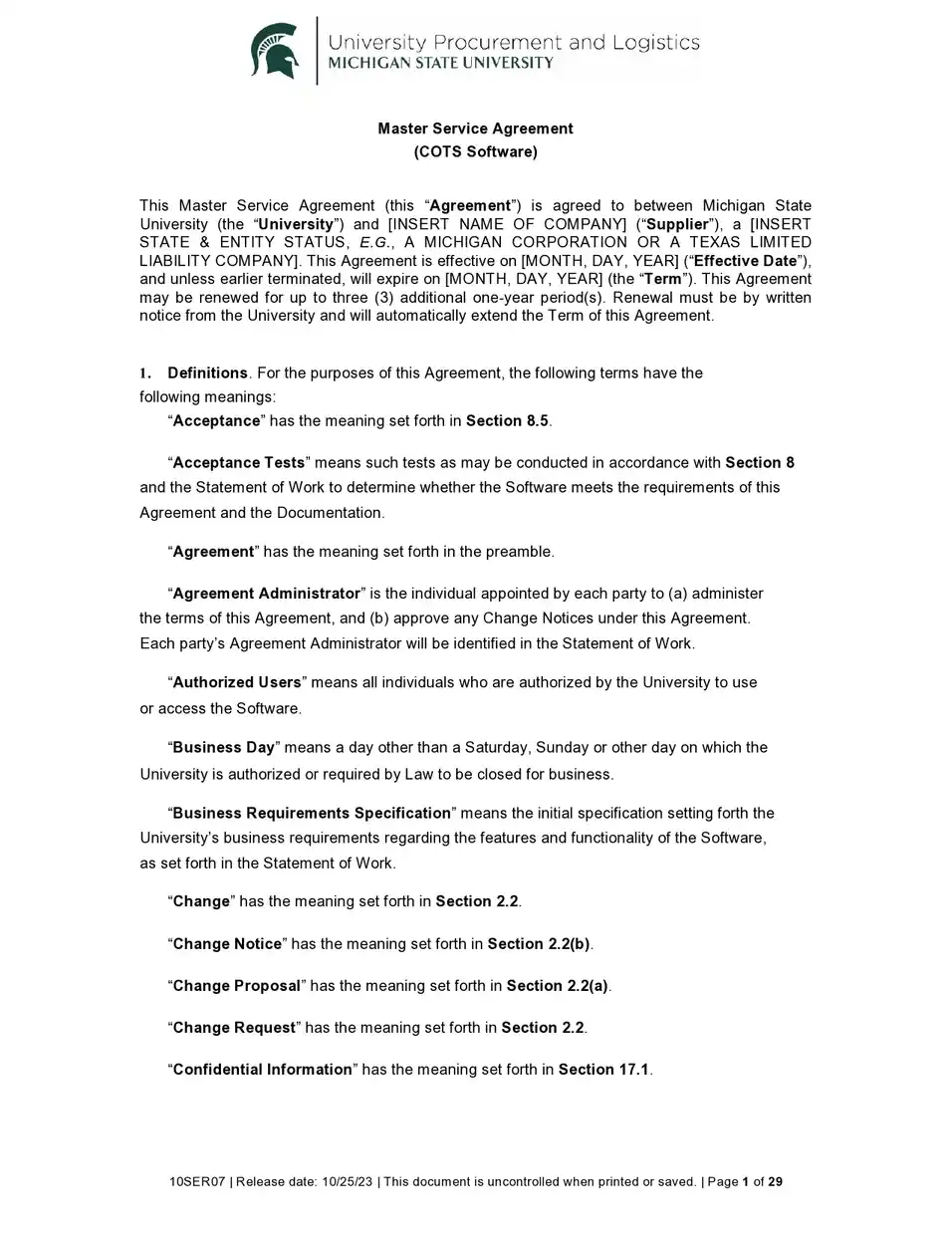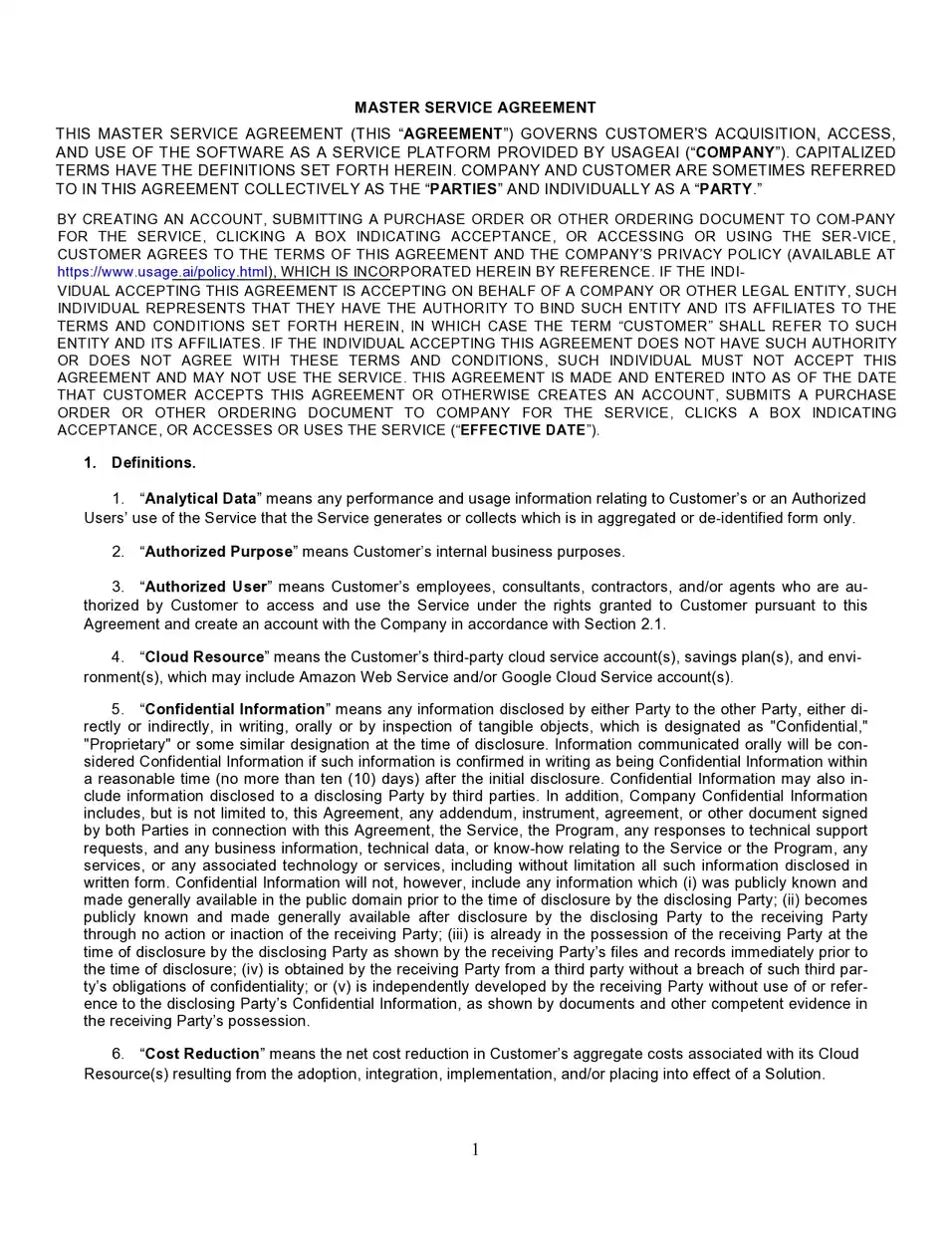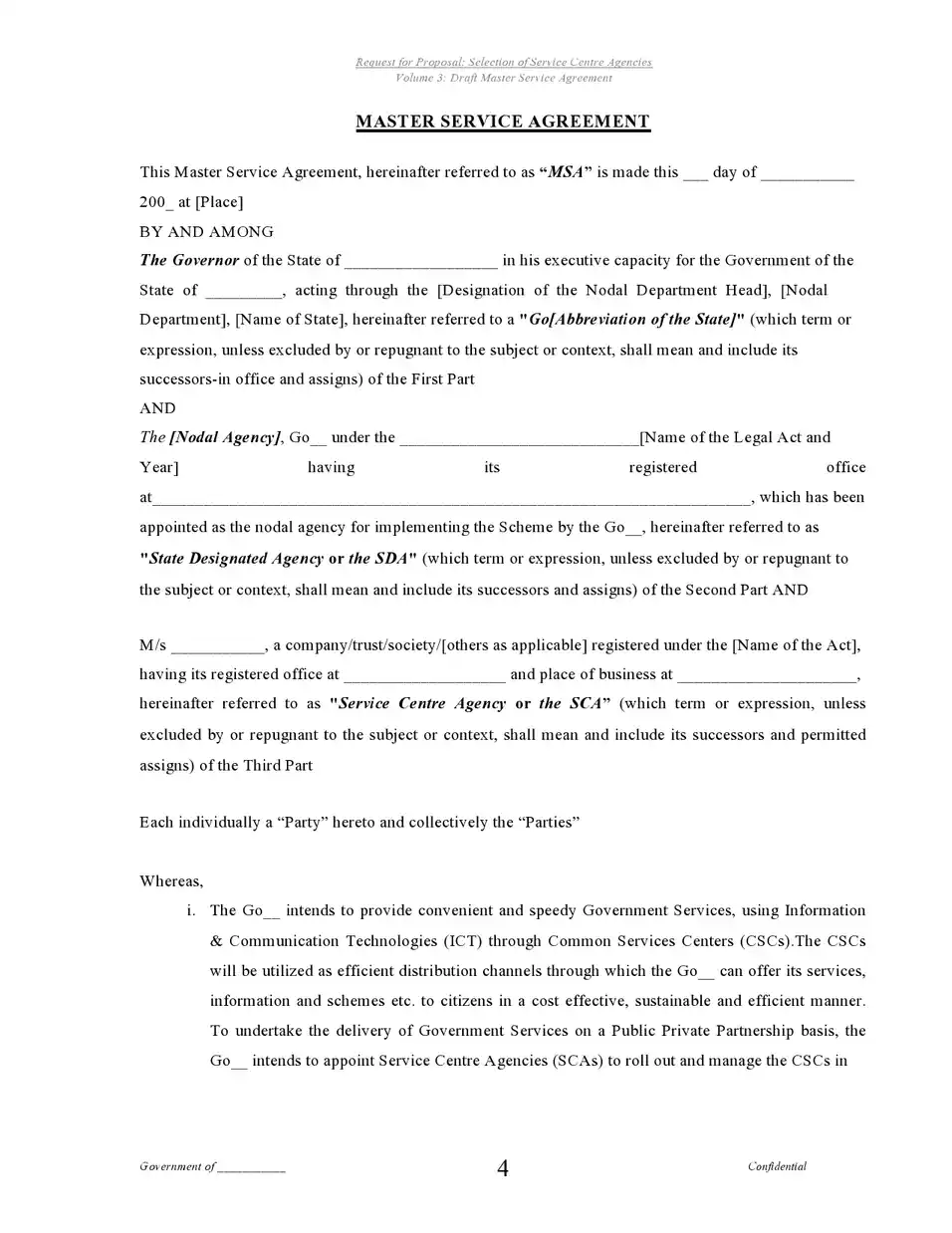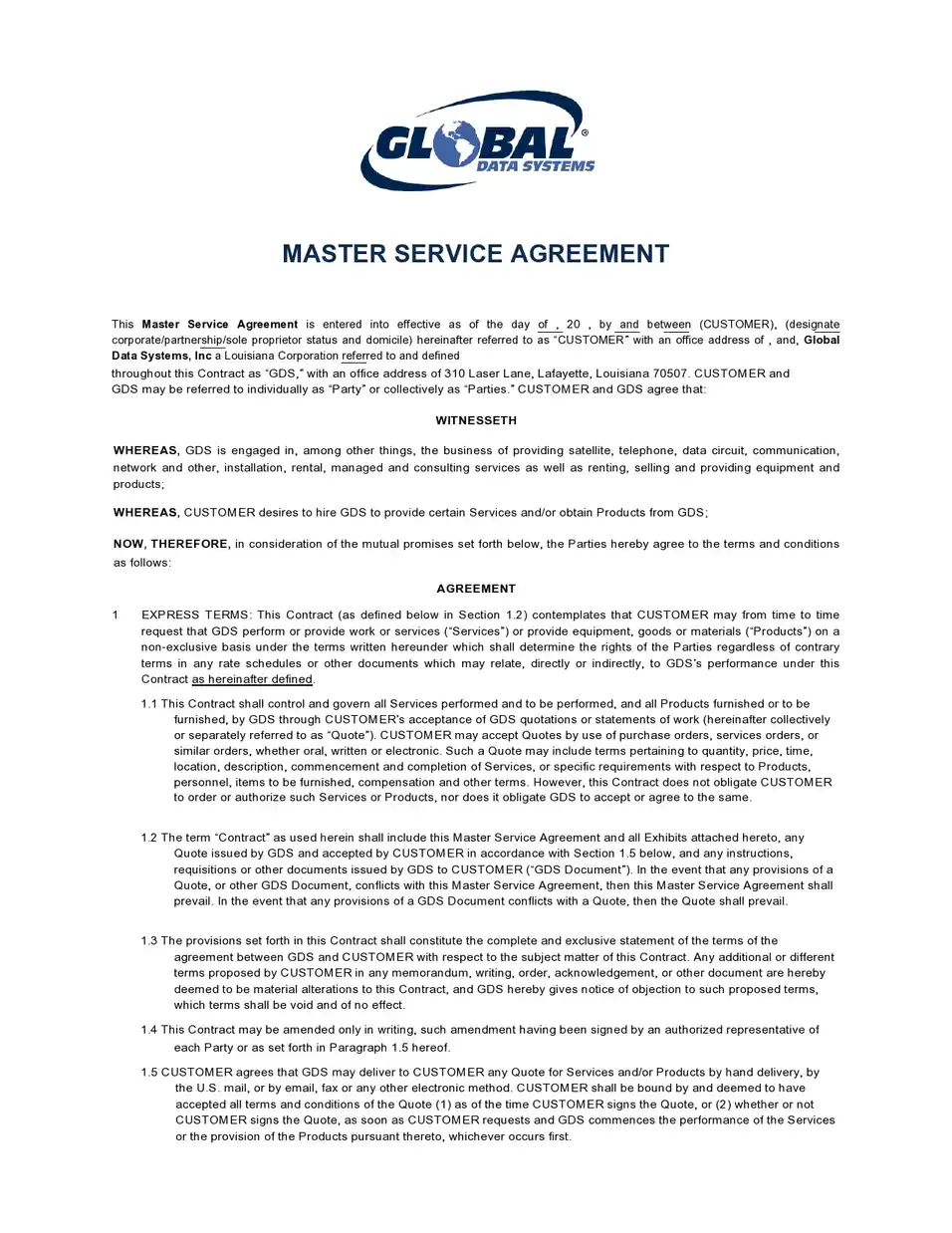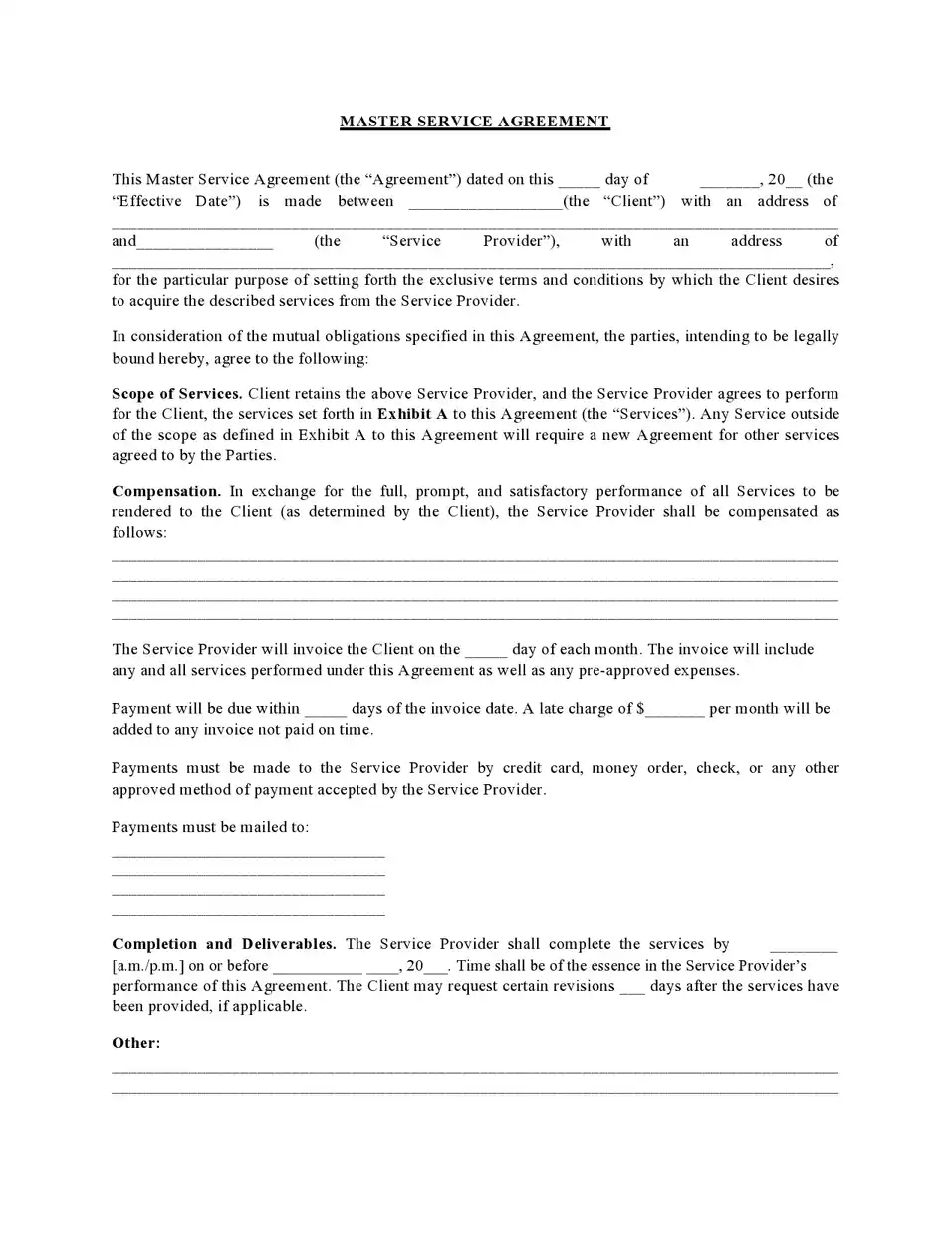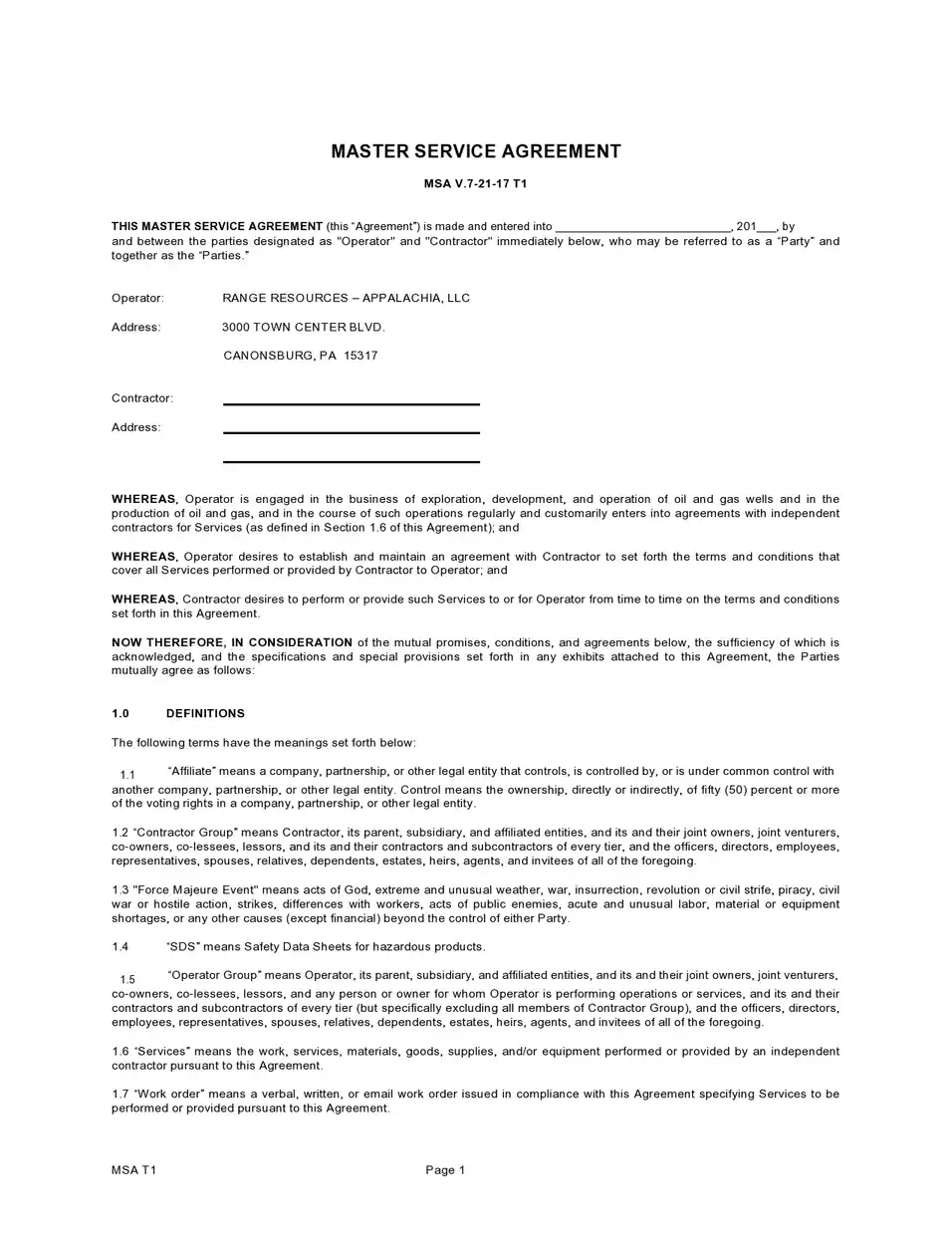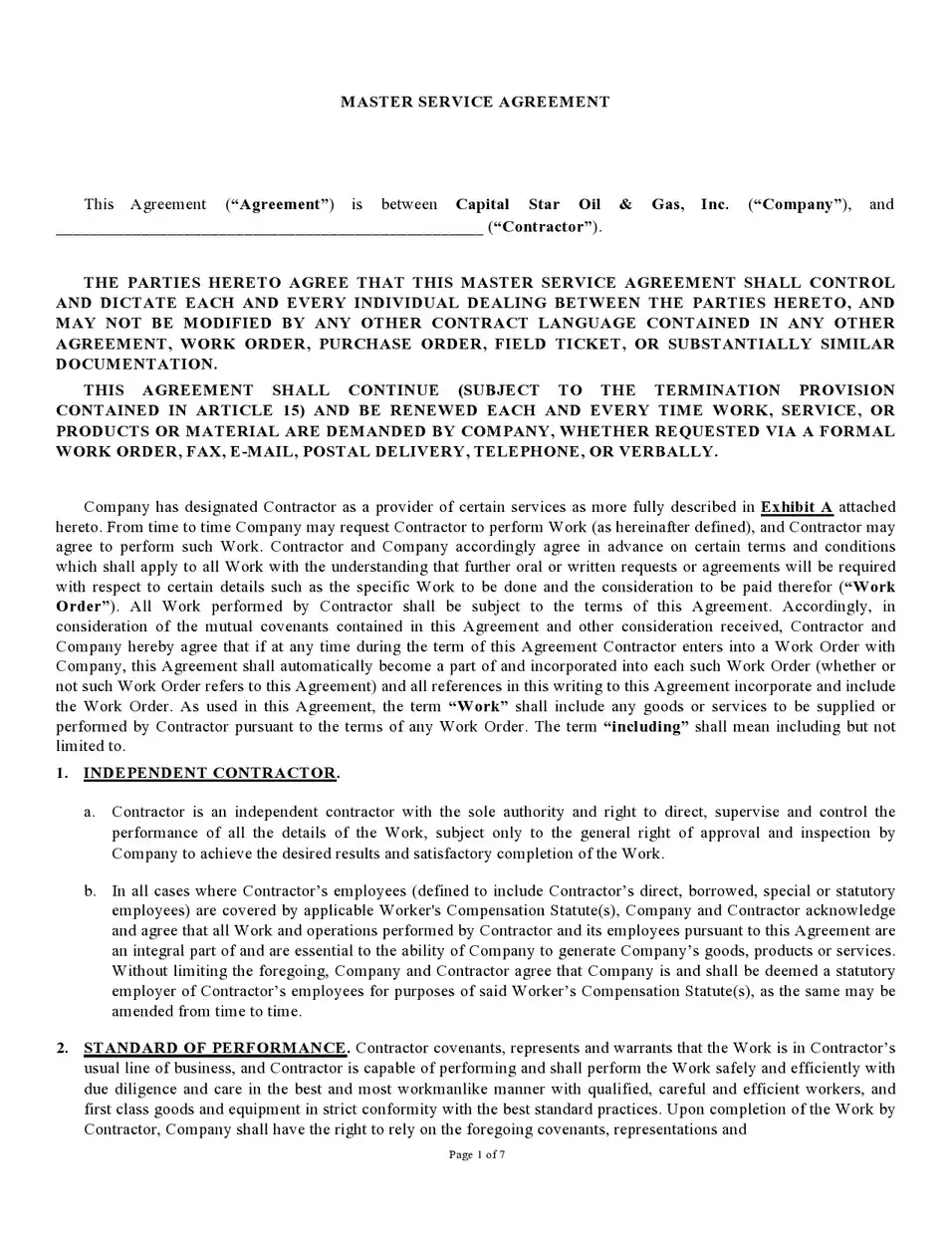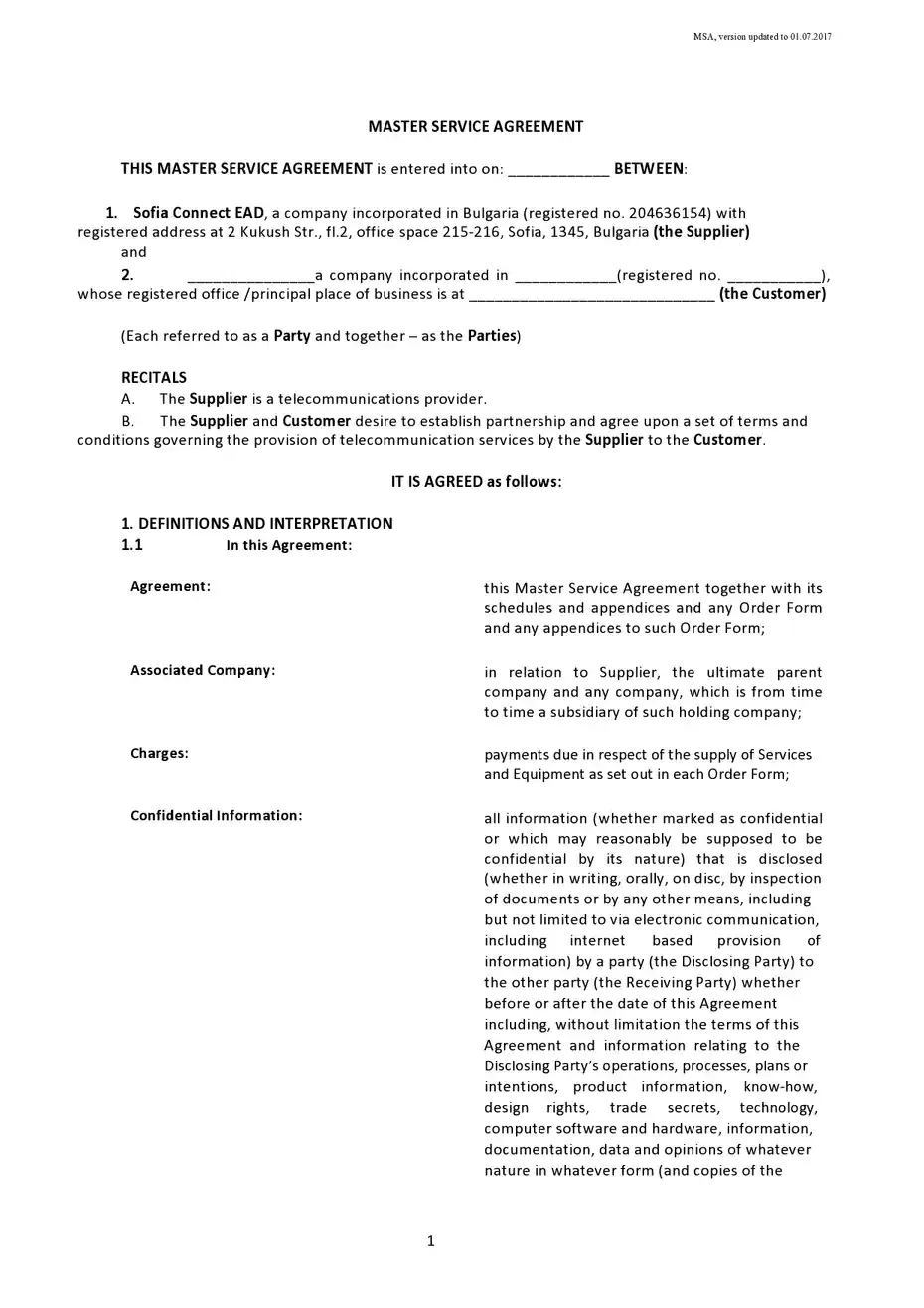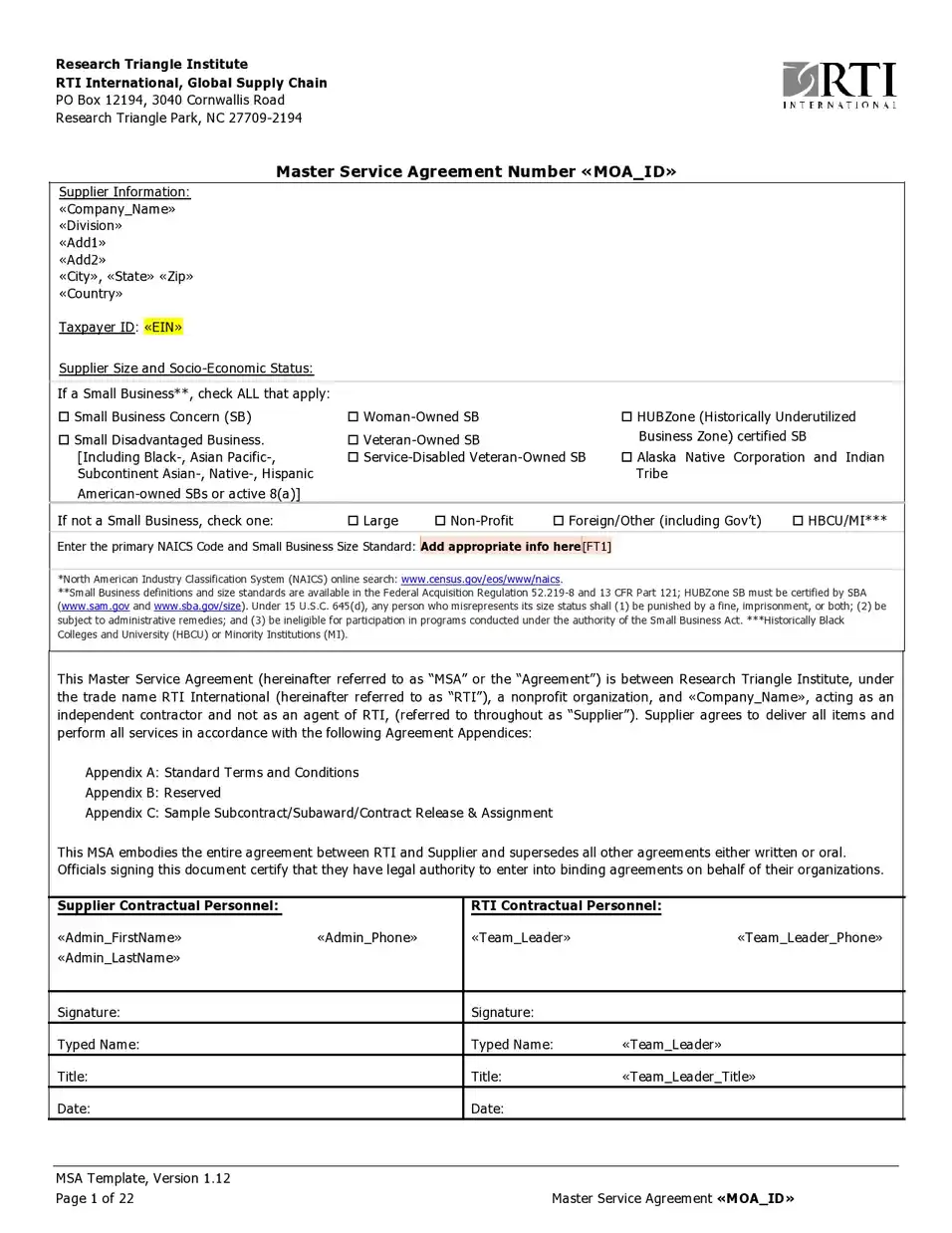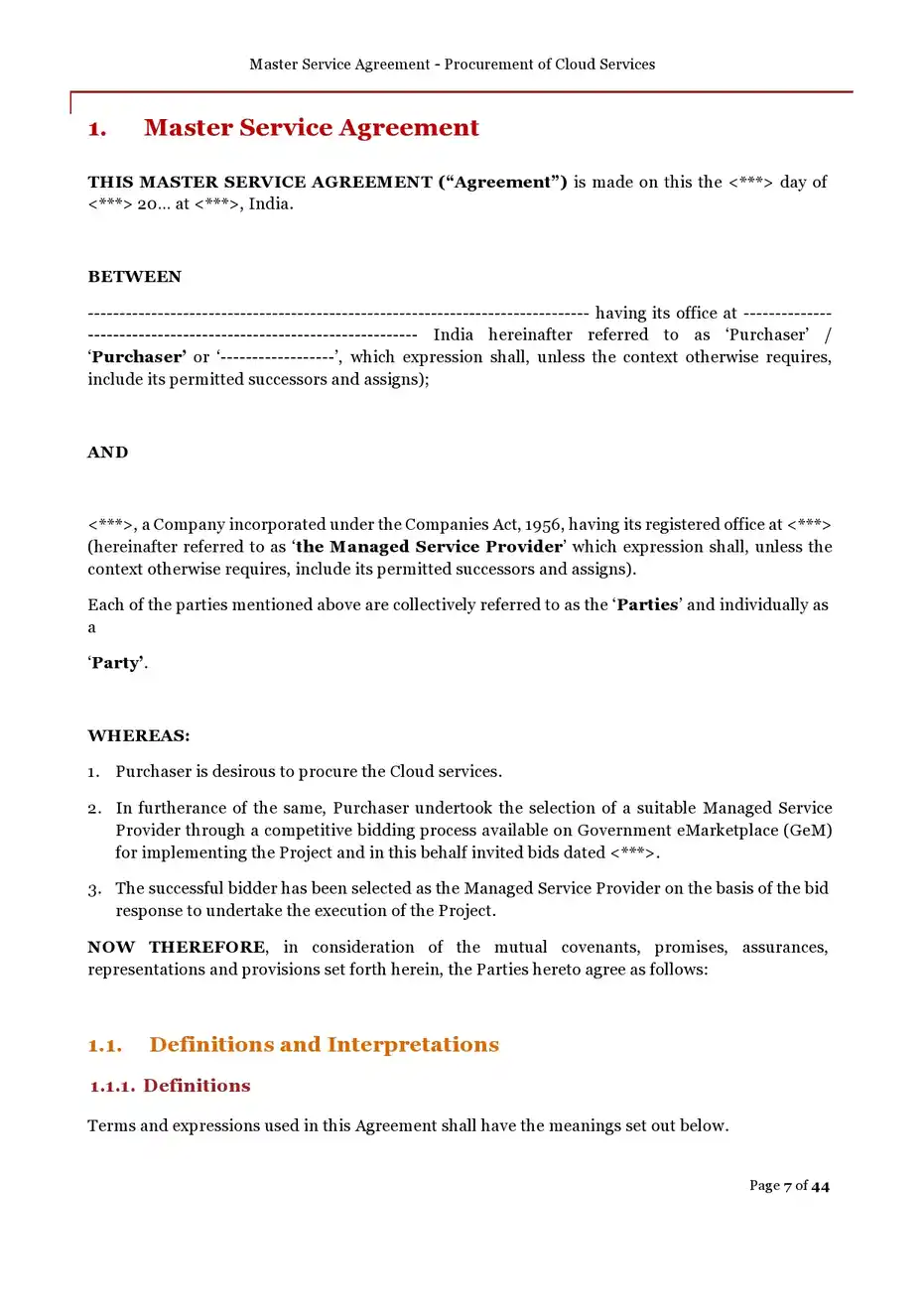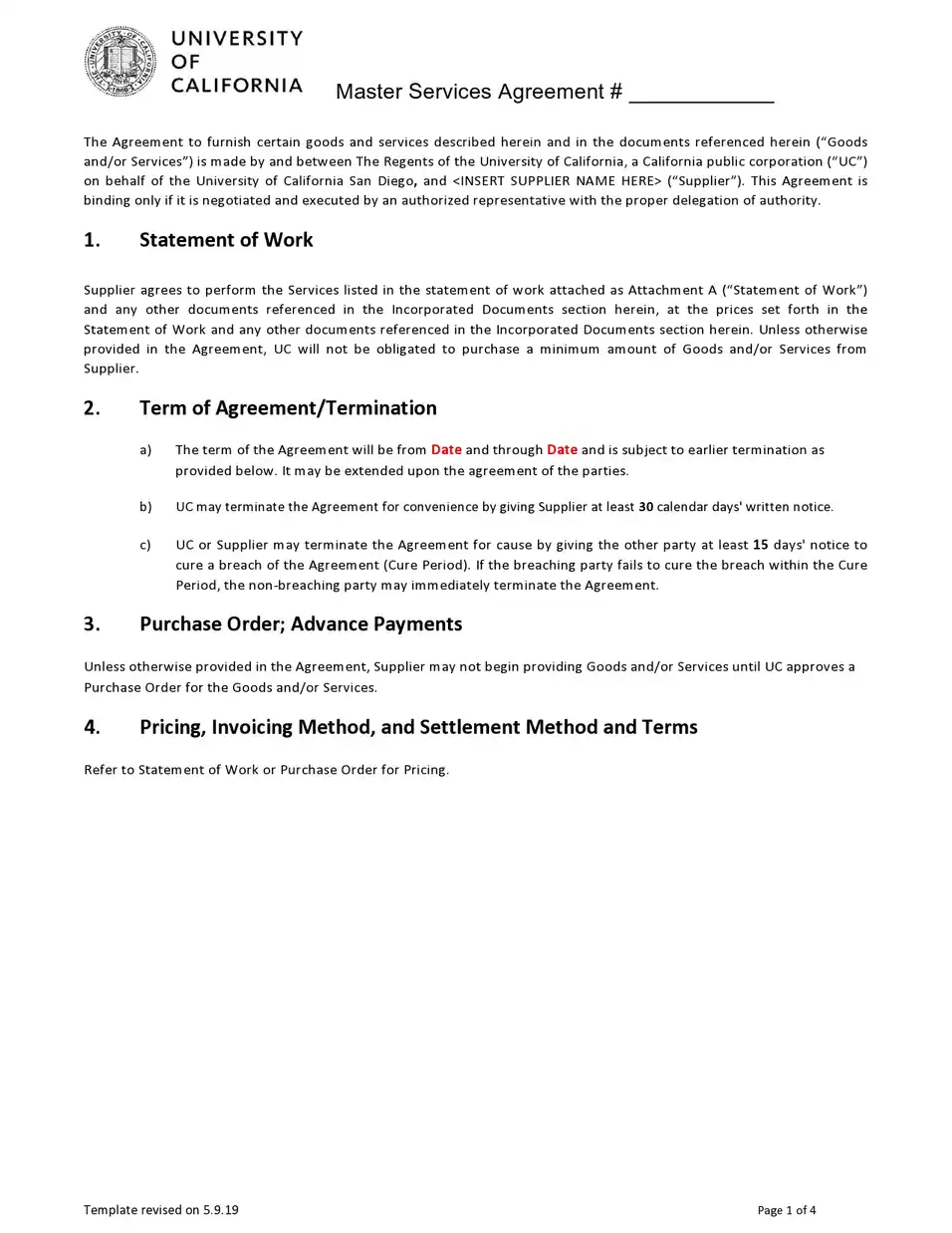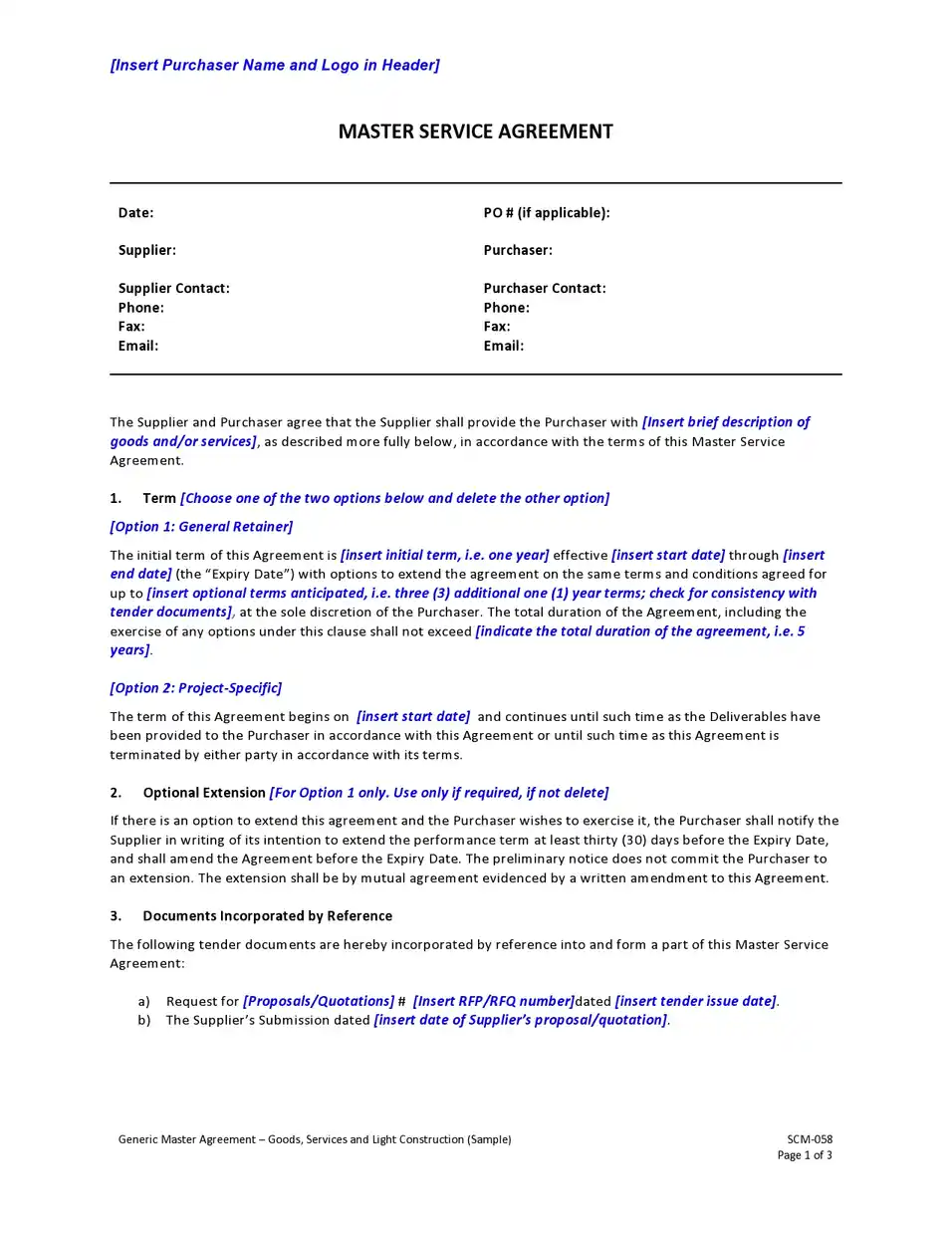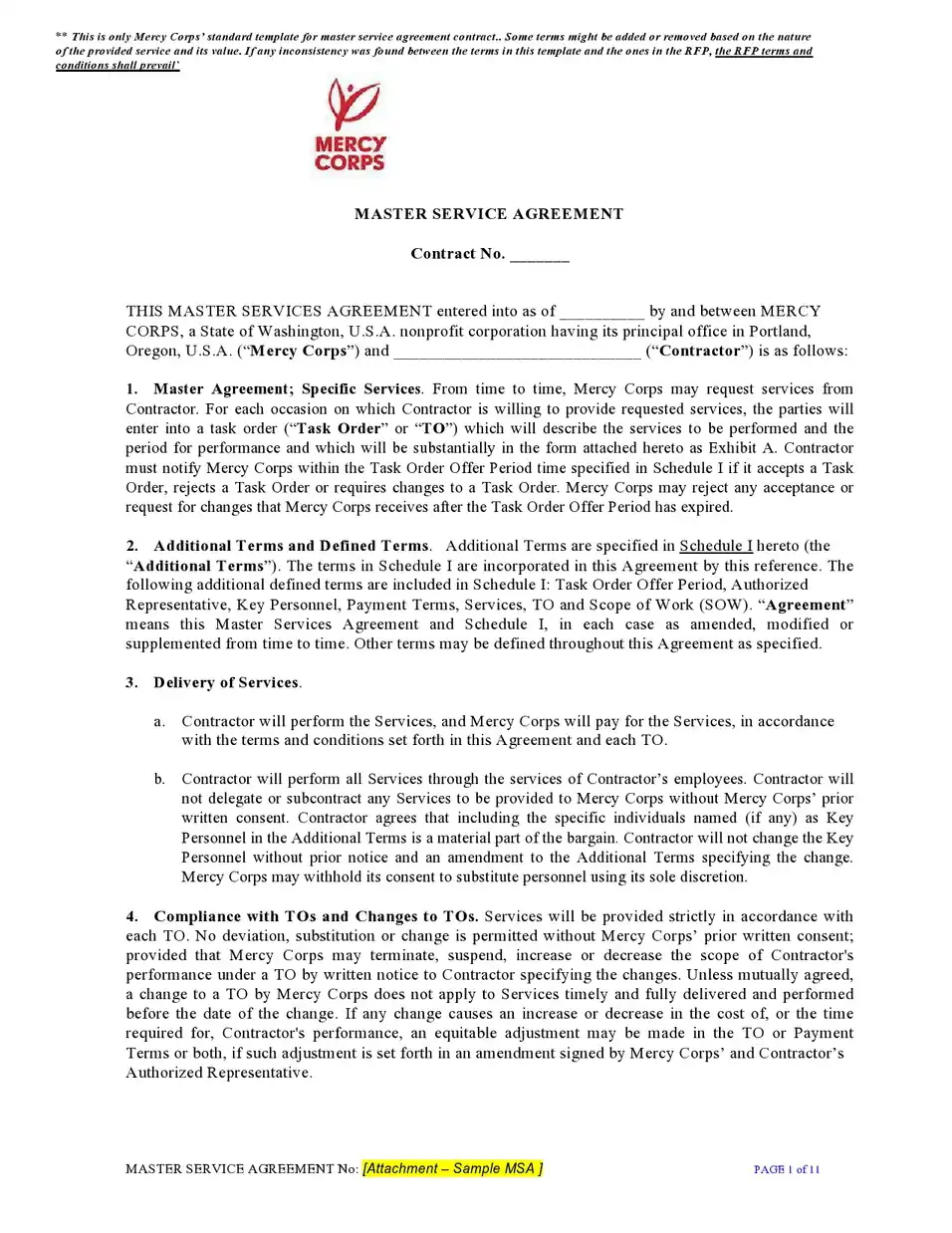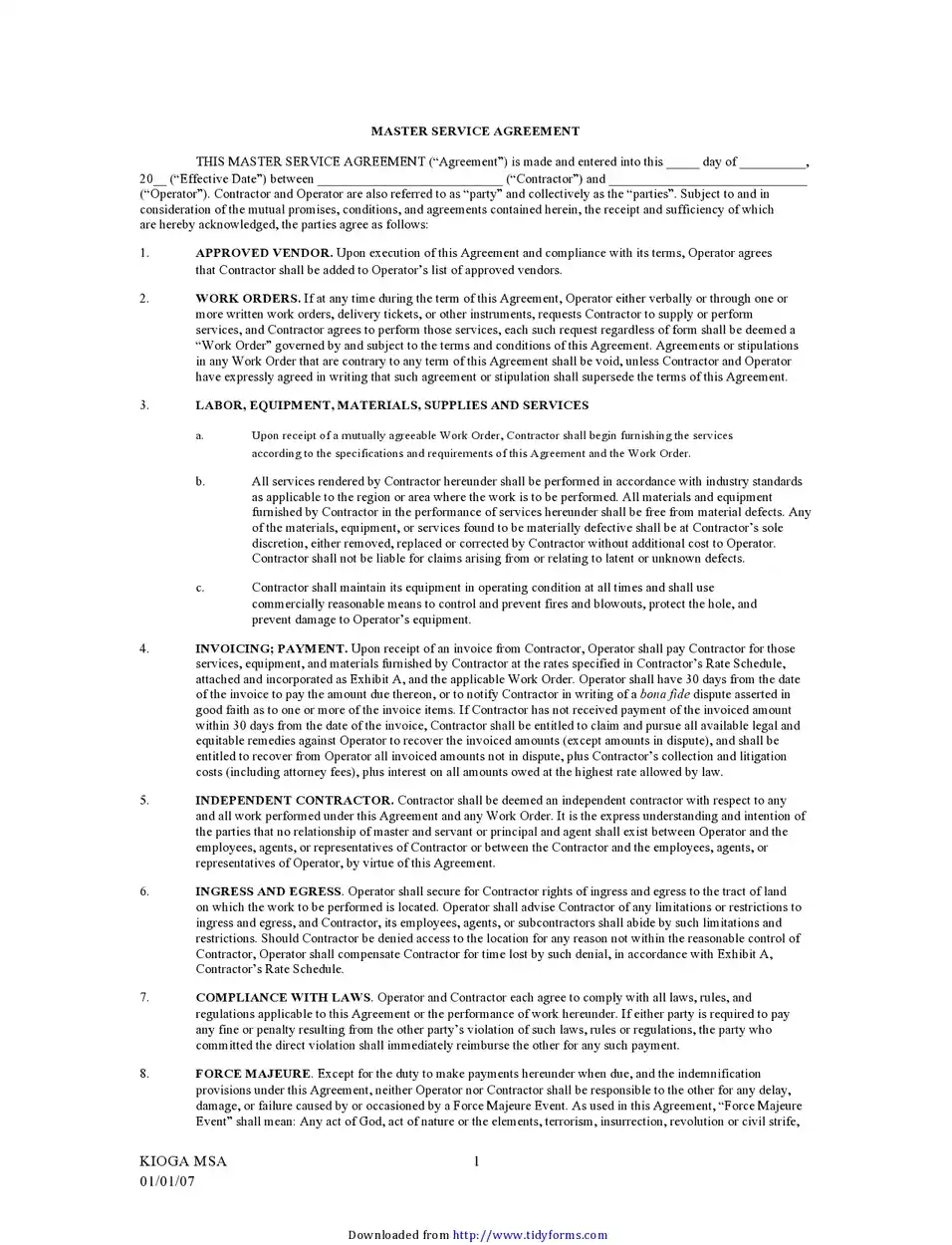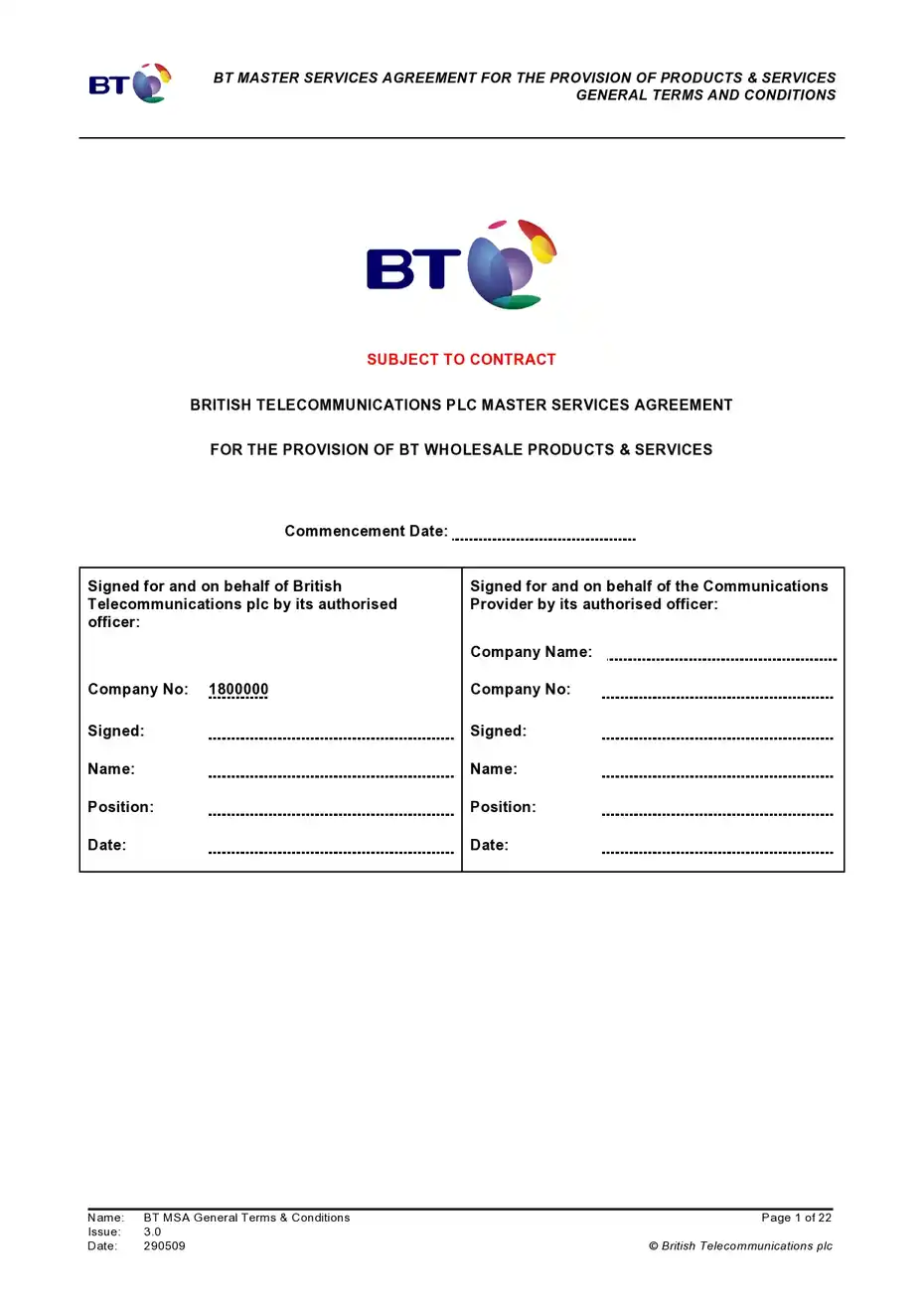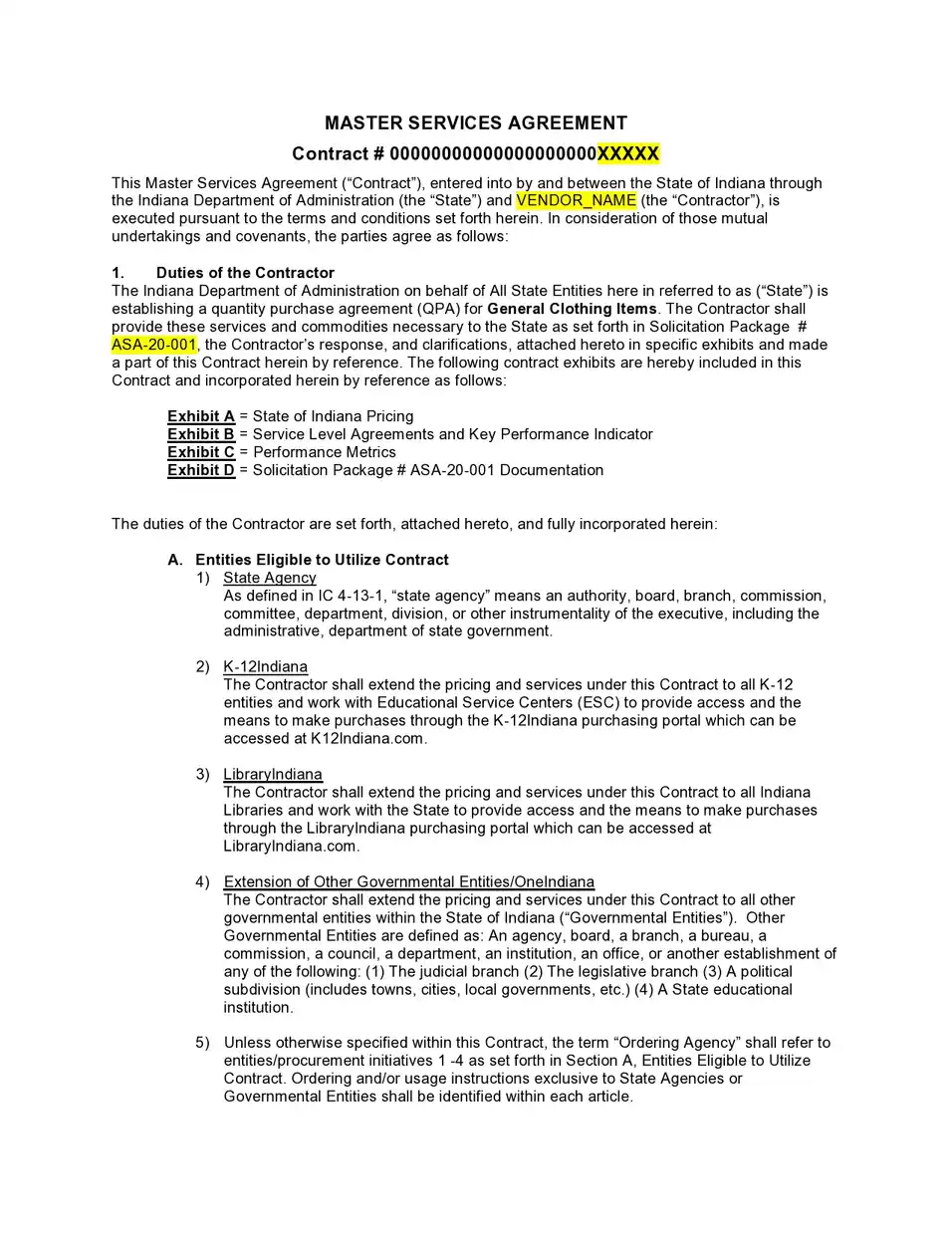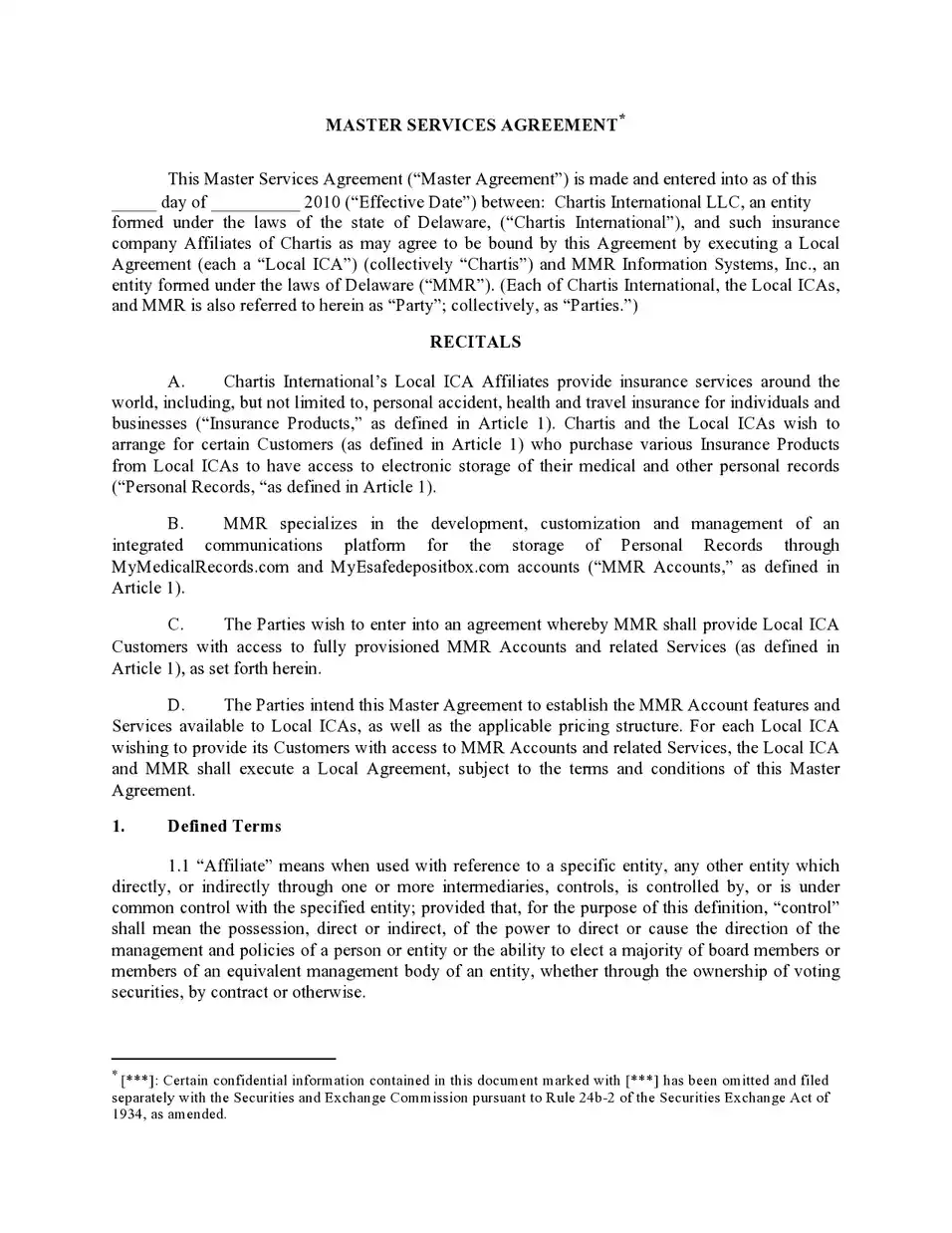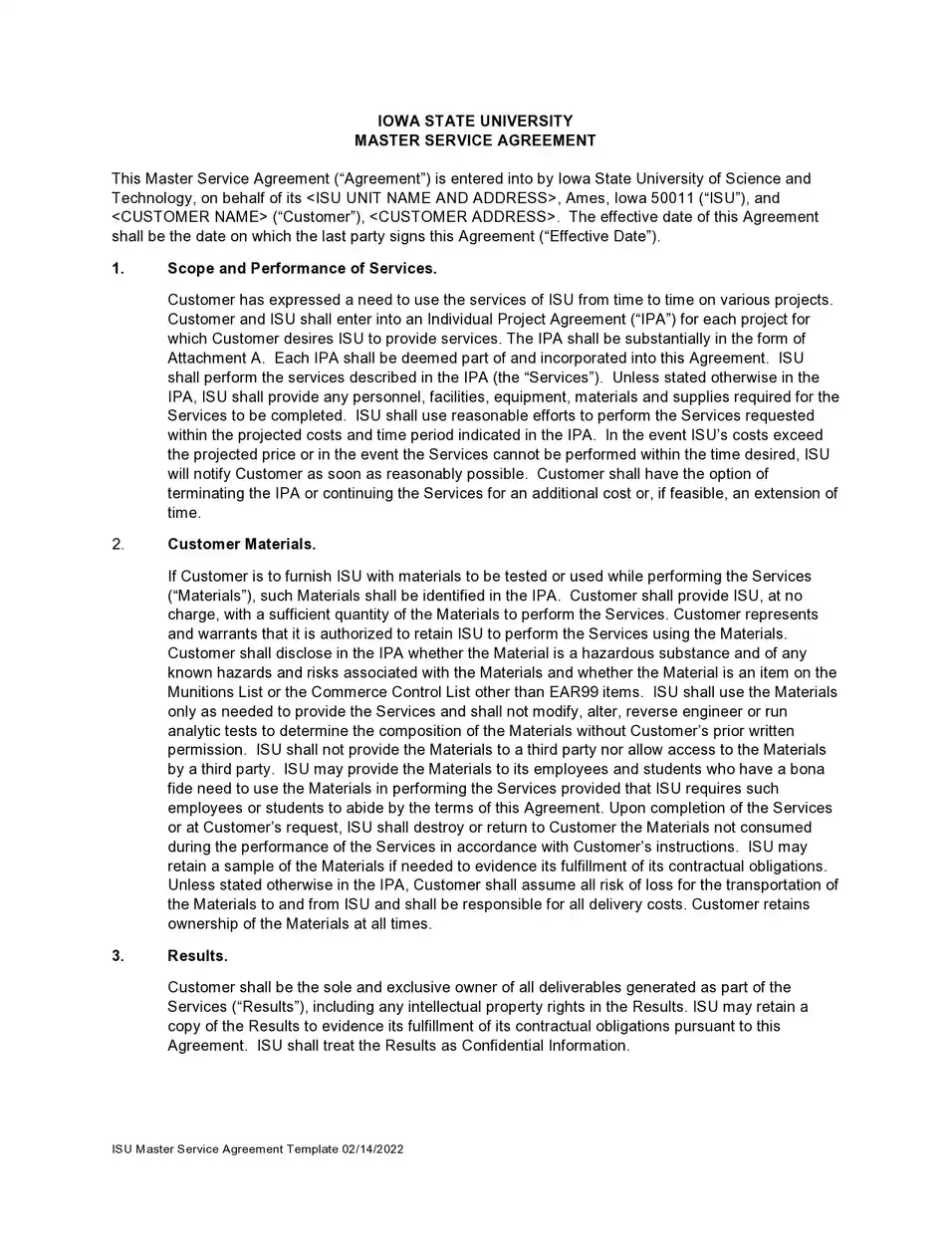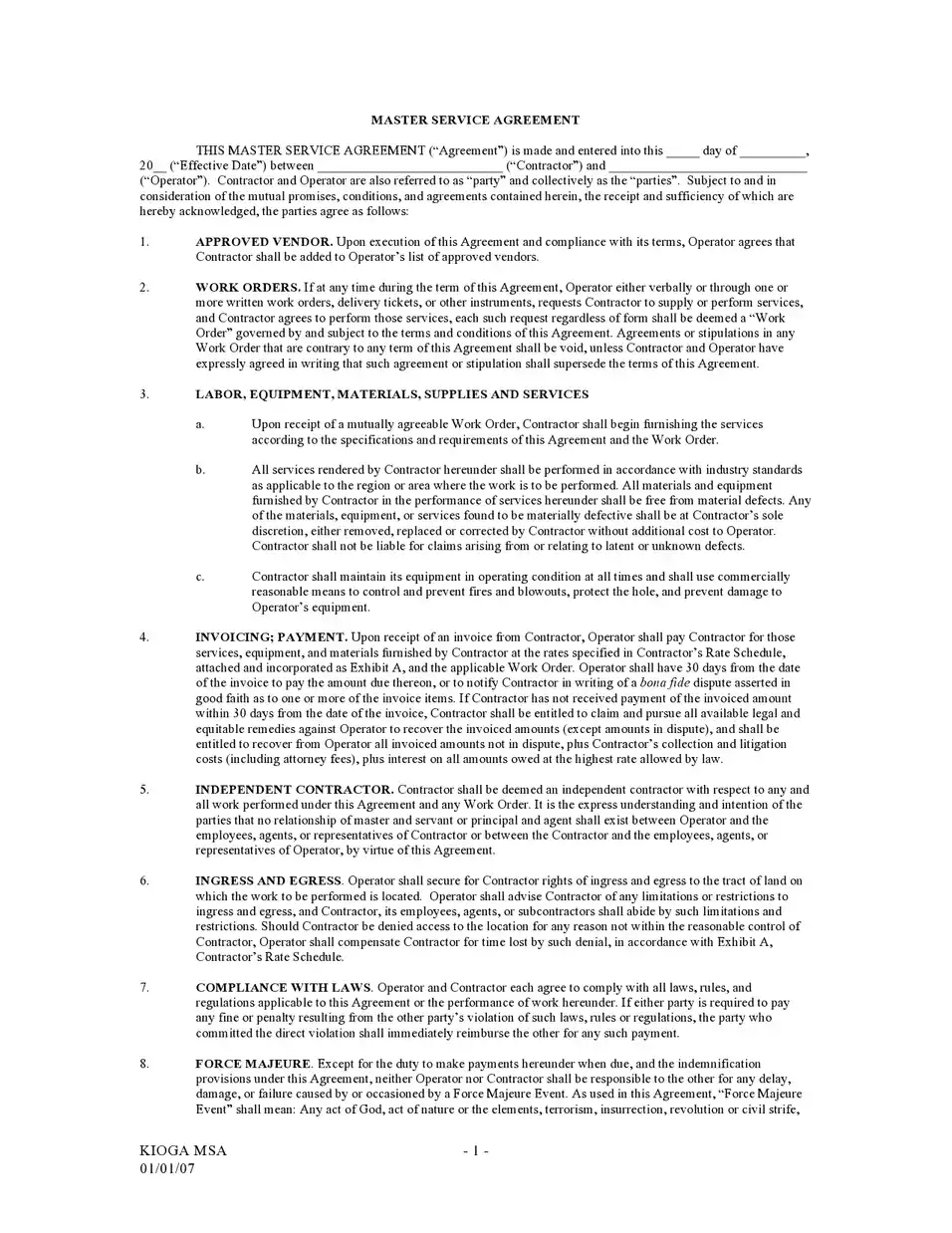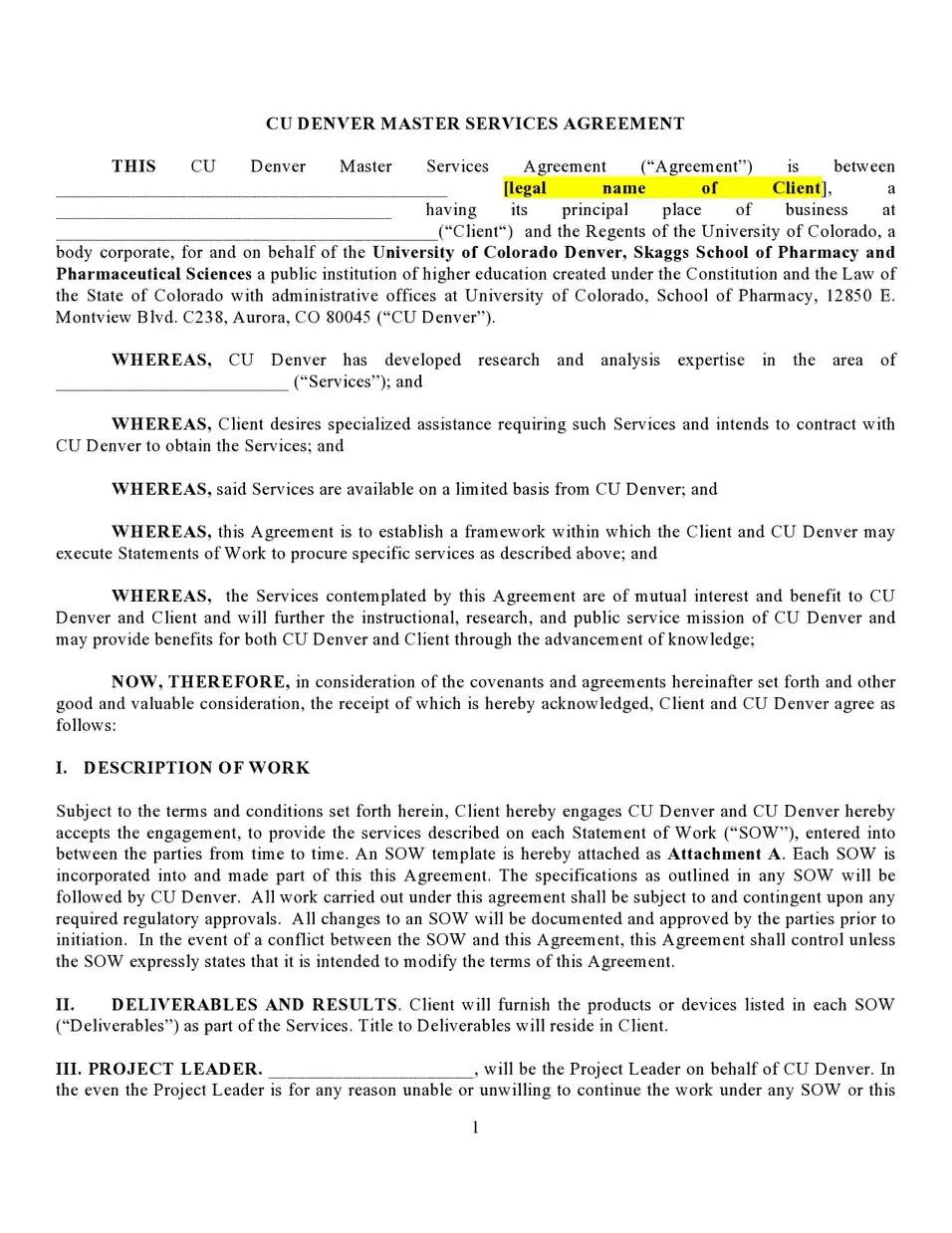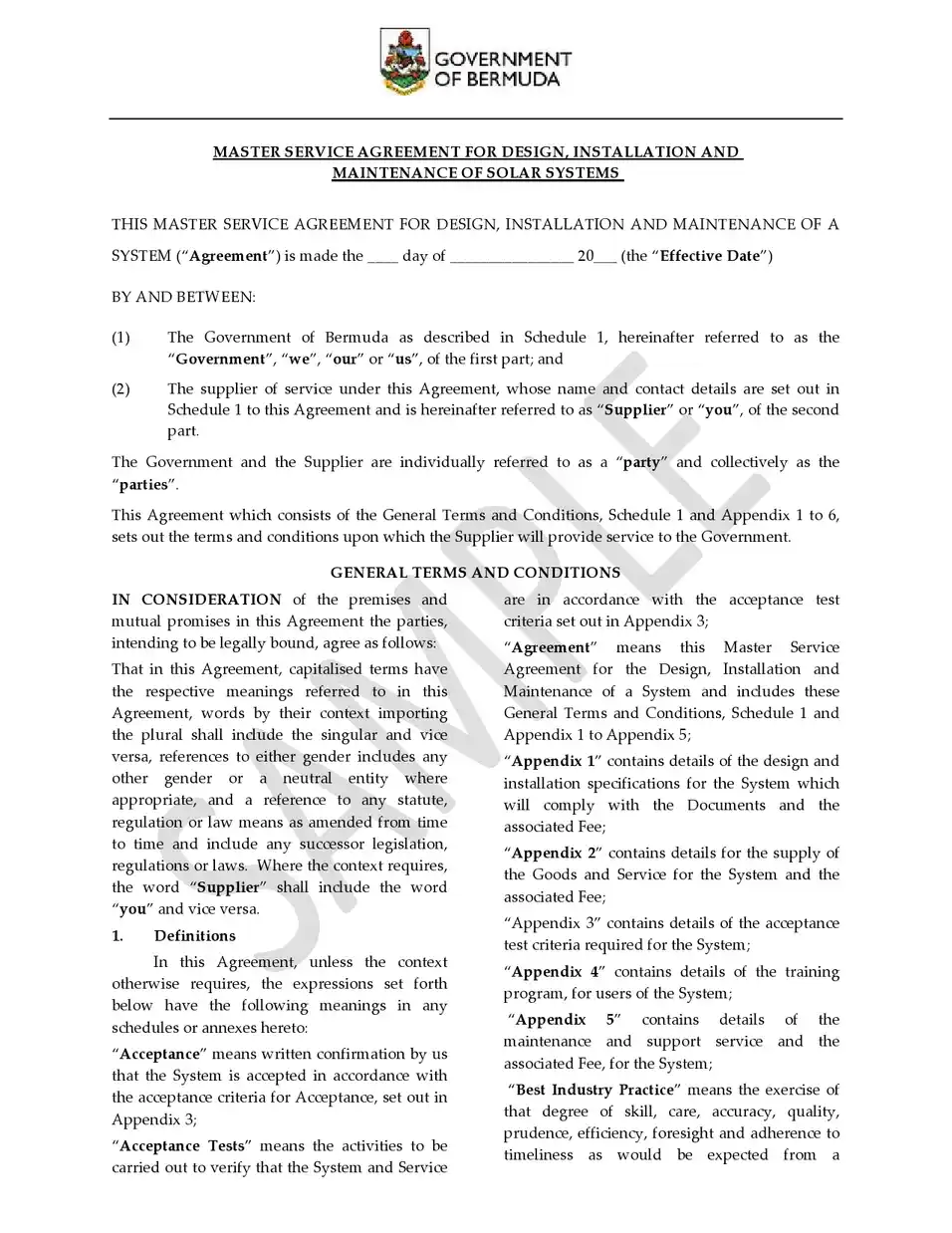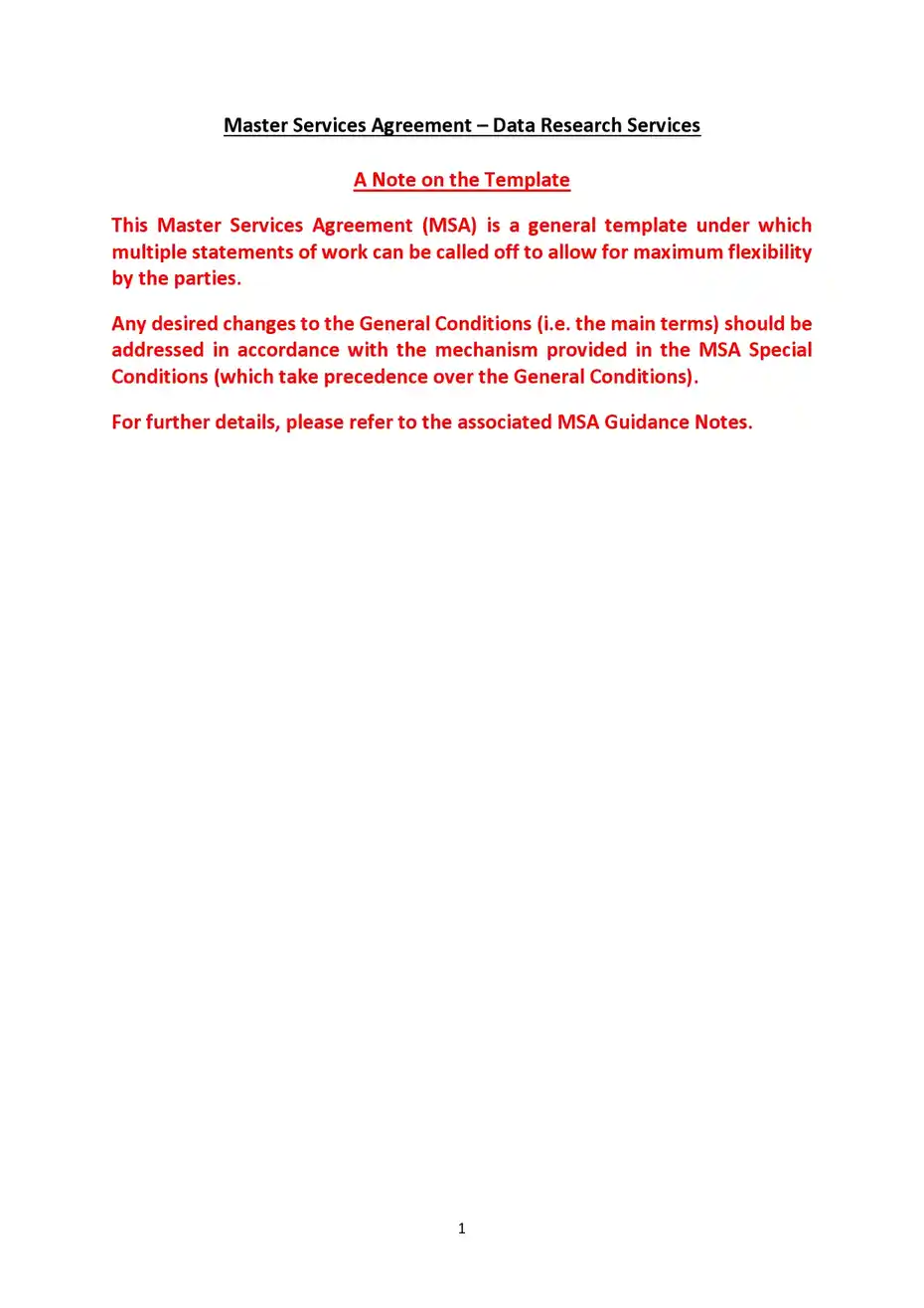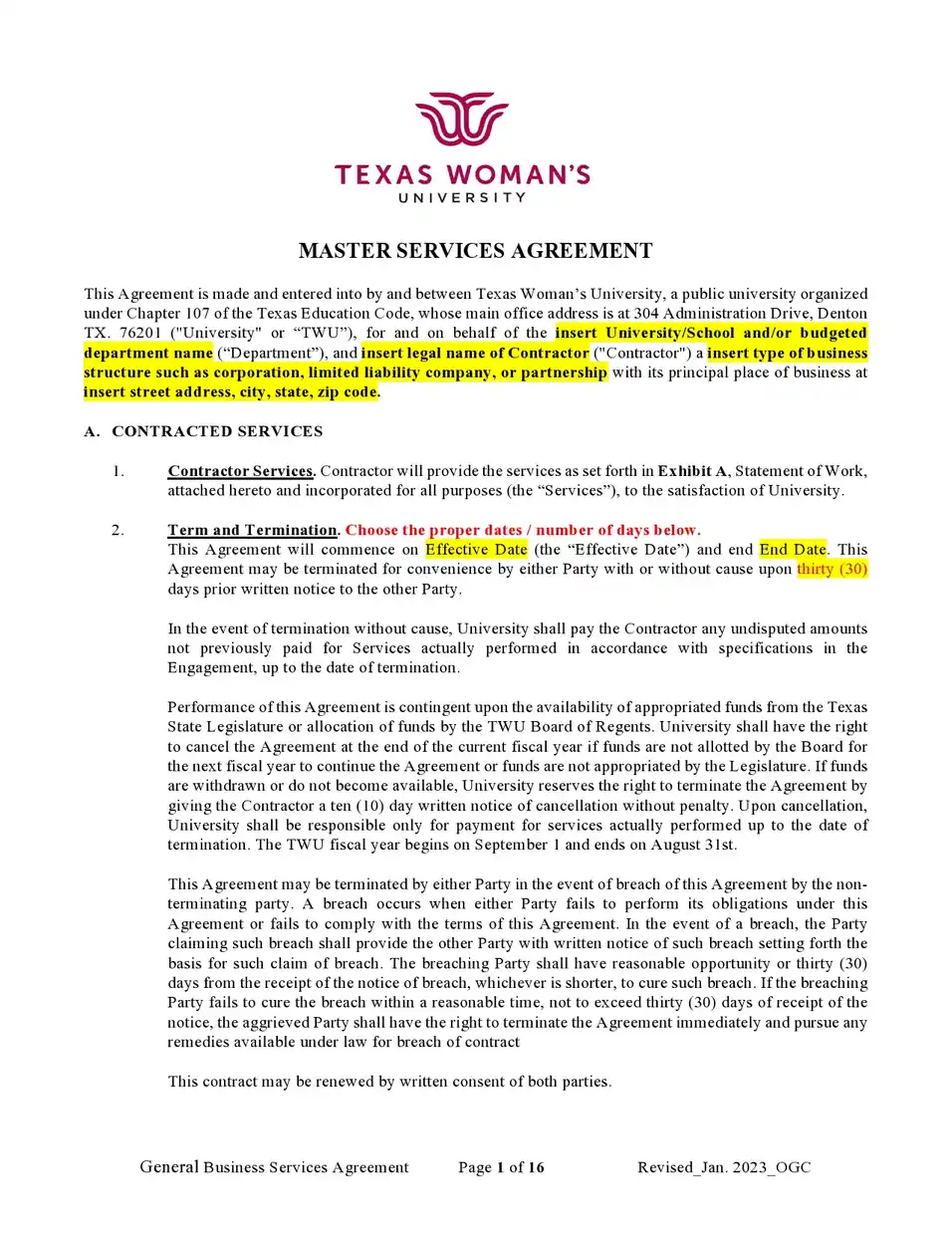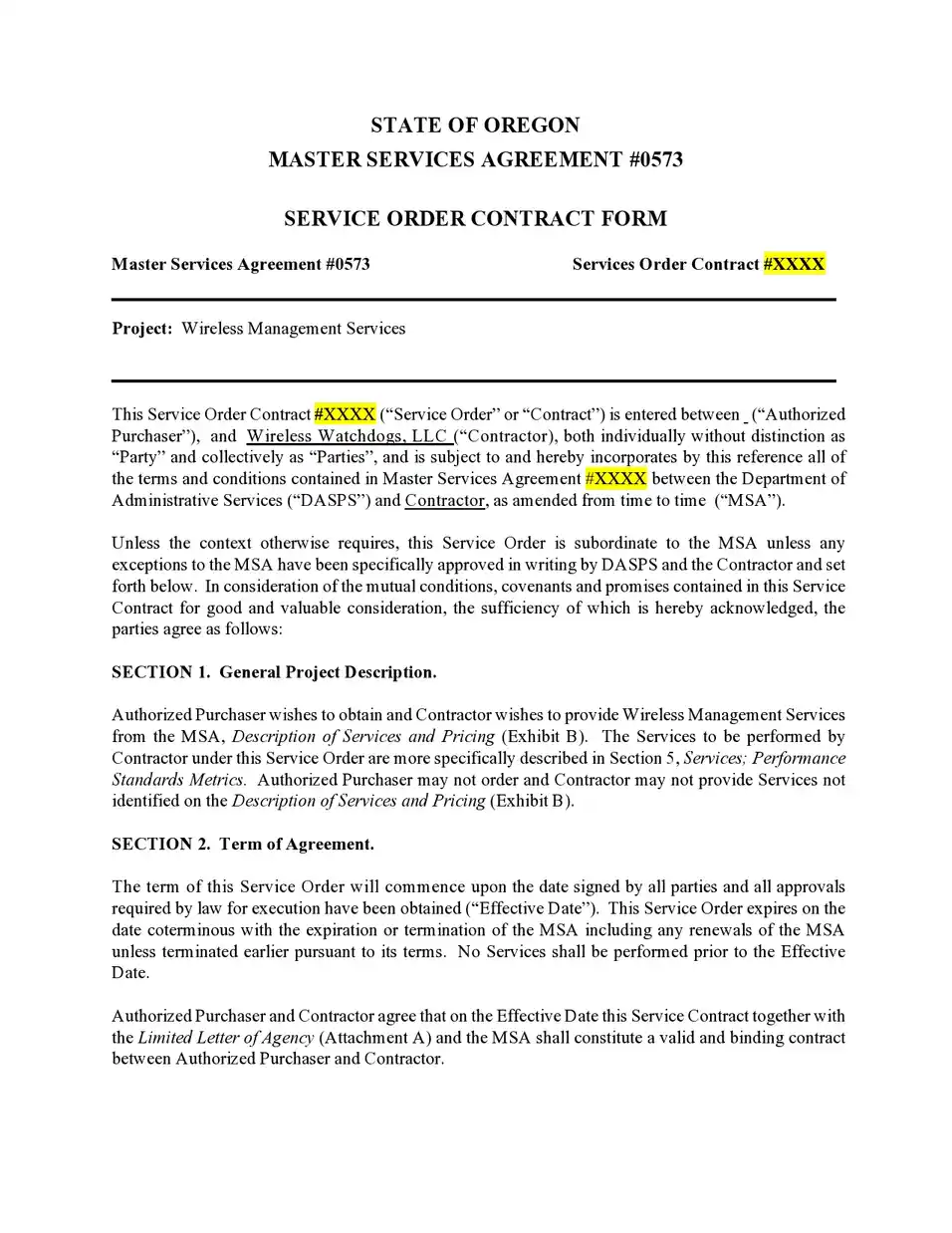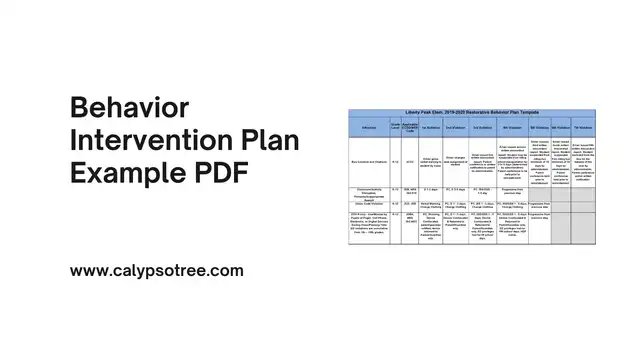A simple master service agreement template (MSA) is a special contract that helps businesses set rules for working together on future projects. It makes starting new projects quicker and easier.
MSAs are important because they save time and money. They ensure everyone knows what to do, which helps stop problems and builds trust between businesses. Companies can work better with a simple MSA and do the job correctly.
What is a Master Service Agreement (MSA)?
A Master Service Agreement (MSA) is a contract between two parties that sets the rules for future work. It helps businesses collaborate more easily and quickly
Why is a Master Service Agreement Important?
A Master Service Agreement (MSA) is very important for businesses. It simplifies business dealings and builds strong relationships. Here’s why an MSA is important:
1. Establishes a Framework
An MSA sets up a basic framework for all future projects. This helps businesses know what to expect and makes starting new projects easier.
2. Encourages Long-Term Partnerships
With an MSA, businesses can build long-term partnerships. It creates trust and helps both parties work together smoothly over time.
3. Provides Legal Clarity
Having clear terms and conditions helps prevent misunderstandings. It makes sure both parties know their responsibilities and rights.
4. Enhances Efficiency
An MSA makes business operations more efficient. By having a standard agreement, businesses can avoid delays and start projects faster.
5. Supports Strategic Planning
With an MSA, businesses can plan long-term projects more effectively. They clearly understand the terms, which helps in strategic planning.
Key Components of an MSA
These parts help make sure that both parties understand their roles and responsibilities. Here are the key components of an MSA:
- Scope of Work
The Scope of Work explains what work will be done. It describes the tasks, services, or products one party will provide the other.
- Payment Terms
The Payment Terms tell how and when payments will be made. This includes the price for the work, how often payments will be made, and the payment method. Clear payment terms help avoid misunderstandings about money.
- Confidentiality
The Confidentiality section promises to keep certain information secret. This is important for protecting sensitive business information. Both parties agree not to share this information with others.
- Liability
The Liability section explains who is responsible if something goes wrong. It limits how much one party must pay if they cause a problem.
- Indemnity
The Indemnity clause means one party agrees to protect the other from certain losses. If one party causes a problem that leads to a loss, they agree to cover the costs.
- Dispute Resolution
The Dispute Resolution section explains how disagreements will be solved. This might include steps like mediation or arbitration. Having a clear process helps avoid long and expensive court cases.
- Termination Clause
The Termination Clause tells how the agreement can end. It explains the conditions under which either party can end the MSA. This could include things like failing to meet obligations or giving notice.
- Duration
The Duration section states how long the MSA will last. It tells the start and end dates of the agreement.
- Amendment Process
The Amendment Process explains how changes can be made to the MSA. It tells how both parties can agree to update the terms if needed.
- Governing Law
The Governing Law section states which laws will apply to the MSA. This is important because laws can be different in different places. Choosing the governing law helps avoid confusion.
Each component is essential for ensuring clarity and fairness in the business relationship.
Master Service Agreement Example
Differences Between a Master Service Agreement (MSA) and a Regular Contract
Here are the key differences between an MSA and a regular contract:
Purpose
- MSA: An MSA sets the general terms for a long-term business relationship. It is used when companies plan to work together on many projects over time.
- Regular Contract: A regular contract is specific to one project or job. It only covers the terms for that particular piece of work.
Flexibility
- MSA: An MSA is flexible. It can cover many different projects without needing to be rewritten. Businesses can start new projects under the same MSA by adding details for each project.
- Regular Contract: A regular contract is not flexible. Each new project needs a new contract with all the terms written out again.
Time and Cost
- MSA: Because an MSA is used for multiple projects, it saves time and money. Businesses do not need to spend time writing new contracts for every job, and this also reduces legal fees.
- Regular Contract: Every new project needs a new contract. This takes time and can be costly because businesses might need lawyers to help write each contract.
Simplicity
- MSA: An MSA simplifies managing many projects. Businesses can quickly start new projects without long negotiations with the main terms already agreed upon.
- Regular Contract: Each project requires a separate negotiation and contract, which can slow down the process and make managing multiple projects more complicated.
Relationship Building
- MSA: An MSA helps build strong, long-term relationships between businesses. By having a clear, ongoing agreement, businesses can work together more smoothly and trust each other more.
- Regular Contract: Regular contracts are good for one-time projects but do not help build long-term relationships as effectively.
Risk Management
- MSA: An MSA helps manage risk over multiple projects. It includes terms that cover different situations, which helps protect both parties.
- Regular Contract: Each contract only covers the risk for that project. If businesses work together on many projects, they need to manage risks separately for each one.
Who Typically Uses a Master Service Agreement?
Many different types of businesses use a Master Service Agreement (MSA). Here are some examples of who typically uses an MSA:
- Information Technology (IT) Companies
IT companies often provide ongoing services like software updates, tech support, and maintenance. An MSA helps them set up the basic rules for all their projects with a client, making it easy to start new projects quickly.
- Manufacturing Companies
Manufacturers might supply products regularly to other businesses. An MSA sets the terms for these deliveries, ensuring everyone knows what to expect. This helps keep the business relationship smooth and efficient.
- Consulting Firms
Consultants work on many projects for the same client. An MSA helps by having a main agreement for all the projects. This way, they don’t need to create a new contract for each job.
- Construction Companies
Construction projects can be complex and involve many stages. An MSA can cover all the different parts of the work, making it easier to manage the whole project.
- Service Providers
Service providers, like cleaning companies or security firms, use MSAs to set up long-term agreements with their clients. This helps them provide consistent service without needing to renegotiate all the time.
- Freelancers and Independent Contractors
Freelancers and independent contractors who work with the same client on different projects can use an MSA. This helps keep the terms of their work clear and consistent over time.
These agreements help standardise terms and make business dealings more efficient.
Master Service Agreement Sample
Benefits of Having a Master Service Agreement (MSA)
A Master Service Agreement (MSA) offers many benefits to businesses. Here are some of the key advantages:
- Saves Time
An MSA saves time because it sets the basic terms for all projects. This means businesses don’t have to write new contracts for every job. They can start new projects faster because the main rules are already agreed upon.
- Reduces Costs
Creating new contracts can be expensive, especially if lawyers are involved. With an MSA, you only need one main contract, which can be used for many projects, reducing legal costs.
- Clear Terms and Expectations
An MSA clearly outlines what each party must do. It includes important details like the scope of work, payment terms, and deadlines.
- Builds Trust and Better Relationships
Having a clear and fair MSA helps build trust between businesses. When both parties know and follow the rules, it creates a good working relationship.
- Easier Management
An MSA makes managing multiple projects simpler. Businesses can start new projects under the same agreement without renegotiating each time.
- Protects Both Parties
An MSA includes important protections, like confidentiality and liability clauses. Confidentiality ensures that sensitive information is kept secret. Liability clauses define who is responsible if something goes wrong.
- Flexibility
An MSA can be updated if needed. If both parties agree, they can change the MSA to fit new situations.
These benefits make MSAs a valuable tool for businesses.
Managing Risk with an MSA
Managing risk is very important in business. A Master Service Agreement (MSA) helps businesses manage risk in several ways:
- Clear Terms and Conditions
An MSA clearly states what each party must do. It includes important details like the scope of work, payment terms, and deadlines. This clarity helps prevent misunderstandings and reduces the risk of disputes.
- Confidentiality Clauses
An MSA often includes a confidentiality clause. This clause means that both parties agree to keep certain information secret, which is important for protecting sensitive business information.
- Liability Clauses
Liability clauses in an MSA define who is responsible if something goes wrong. This helps protect both parties. For example, the MSA will outline the consequences if one party fails to meet their obligations.
- Indemnity Clauses
An indemnity clause means one party agrees to compensate the other for certain losses. This helps protect against risks that could lead to financial loss.
- Dispute Resolution
An MSA usually includes a dispute resolution process. This means that if there is a disagreement, there is a clear way to resolve it. This can include mediation or arbitration, which helps avoid lengthy and expensive court battles.
- Insurance Requirements
Sometimes, an MSA will require one or both parties to have insurance. This adds another layer of protection. If something goes wrong, the insurance can help cover the costs.
What Should be Included in an MSA?
These elements help make the agreement clear and effective. Here are the important things to include:
Clear Definitions
Include clear definitions of all key terms used in the agreement. This will help ensure that everyone understands what the terms mean.
Detailed Scope of Work
Outline the services to be provided in detail. This section should explain what work will be done, how it will be done, and what is expected from both parties.
Payment Terms
Specify payment schedules and methods. This includes how much will be paid, when payments will be made, and how they will be made. Clear payment terms help avoid misunderstandings about money.
Confidentiality Clause
Add a confidentiality clause to protect sensitive information. This section ensures that both parties agree to keep certain information private and not share it with others.
Liability and Indemnity
Define each party’s responsibilities and limitations. This includes who is responsible if something goes wrong and how much they might pay. It also includes indemnity, which means one party agrees to protect the other from certain losses.
Including these elements ensures that the MSA is comprehensive and effective.
Structure of a Master Service Agreement
A clear structure helps both parties understand their duties and responsibilities. Here are the common sections to include:
- Introduction
The introduction explains the purpose of the agreement and sets the tone for the rest of the document.
- Definitions
This section explains important words and phrases used in the agreement. Clear definitions help avoid confusion.
- Scope of Work
Describe the services to be provided in detail. This section tells what work will be done and how it will be done.
- Payment Terms
Explain the payment schedules and methods. This includes how much will be paid, when payments will be made, and how they will be made.
- Confidentiality
This section protects private information. It makes sure both parties agree to keep certain information secret.
- Termination
Describe the conditions for ending the agreement. This section tells how and when either party can end the agreement.
Having a well-organized MSA helps both parties understand what they need to do.
Simple Master Service Agreement Template

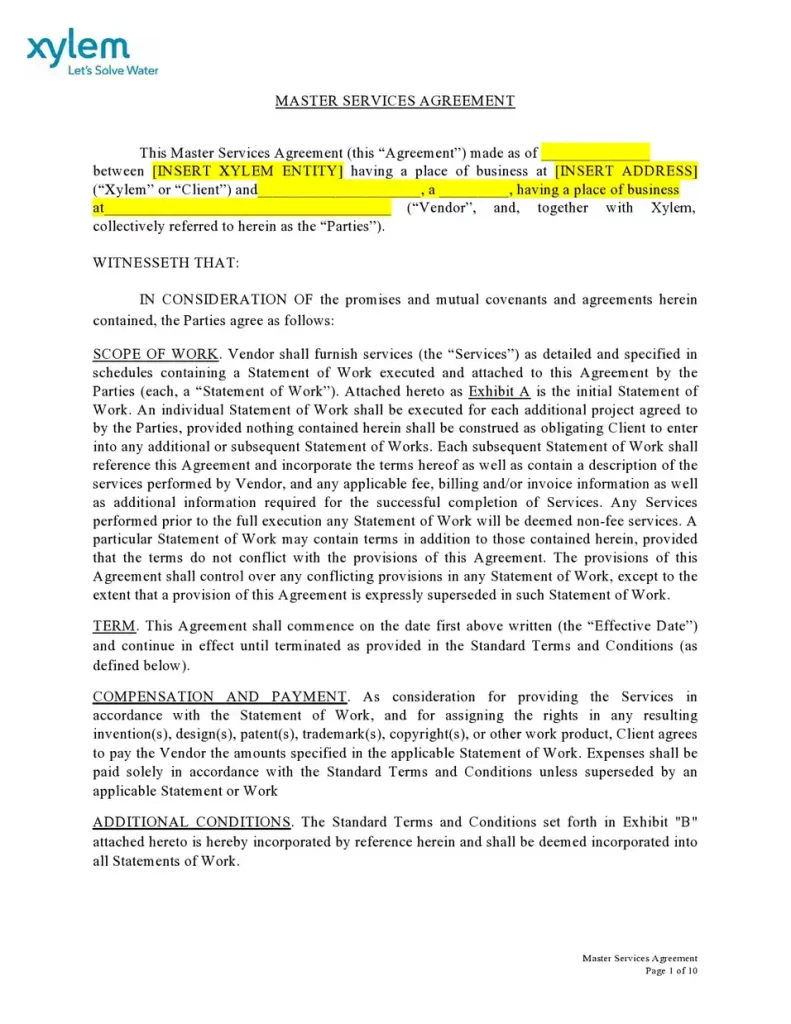








Modifying or Amending an MSA
Sometimes, businesses need to update their agreements. Here’s how to change a Master Service Agreement (MSA):
- Mutual Agreement
Any changes must be agreed upon by both parties. They must discuss and agree that the changes are fair and needed. This ensures that both sides are happy with the update.
- Written Changes
All changes to an MSA should be written down. This creates a clear record of what has been changed. Written changes help prevent confusion and ensure both parties understand the new terms.
- Simple Language
When making changes, use simple and clear language. This ensures that both parties understand the new terms and how they affect the agreement. Clear language helps avoid misunderstandings.
- Update All Copies
Both parties should update their copies of the MSA with the new changes. This ensures everyone has the latest version of the agreement.
- Review the Changes
Both parties should carefully review the changes. They should ensure the new terms are fair and understand how the changes affect the agreement.
- Seek Legal Help
Sometimes, getting legal advice can be helpful when making changes to an MSA. Lawyers can help ensure the new terms are clear, fair, and legally binding.
By following these steps, businesses can keep their MSAs fair and effective as their needs change over time.
This approach helps ensure that both parties remain satisfied with the terms and can adapt to new circumstances without major conflicts (SpotDraft, Concord, Thomson Reuters).
For more detailed information:
DocuSign – (https://www.docusign.com)
SpotDraft (https://www.spotdraft.com)
Axiom Law (https://www.axiomlaw.com)
In conclusion, a simple master service sgreement (MSA) is very helpful for businesses. It saves time, cuts costs, sets clear rules and builds trust. With a simple MSA, businesses can better manage projects and form long-term partnerships, which leads to smoother work and successful teamwork.

The content creator team at calipsotree.com is dedicated to making topics accessible to everyone, with over 9 years of experience in writing and breaking down complex concepts into easy-to-understand articles that answer readers’ financial questions.






